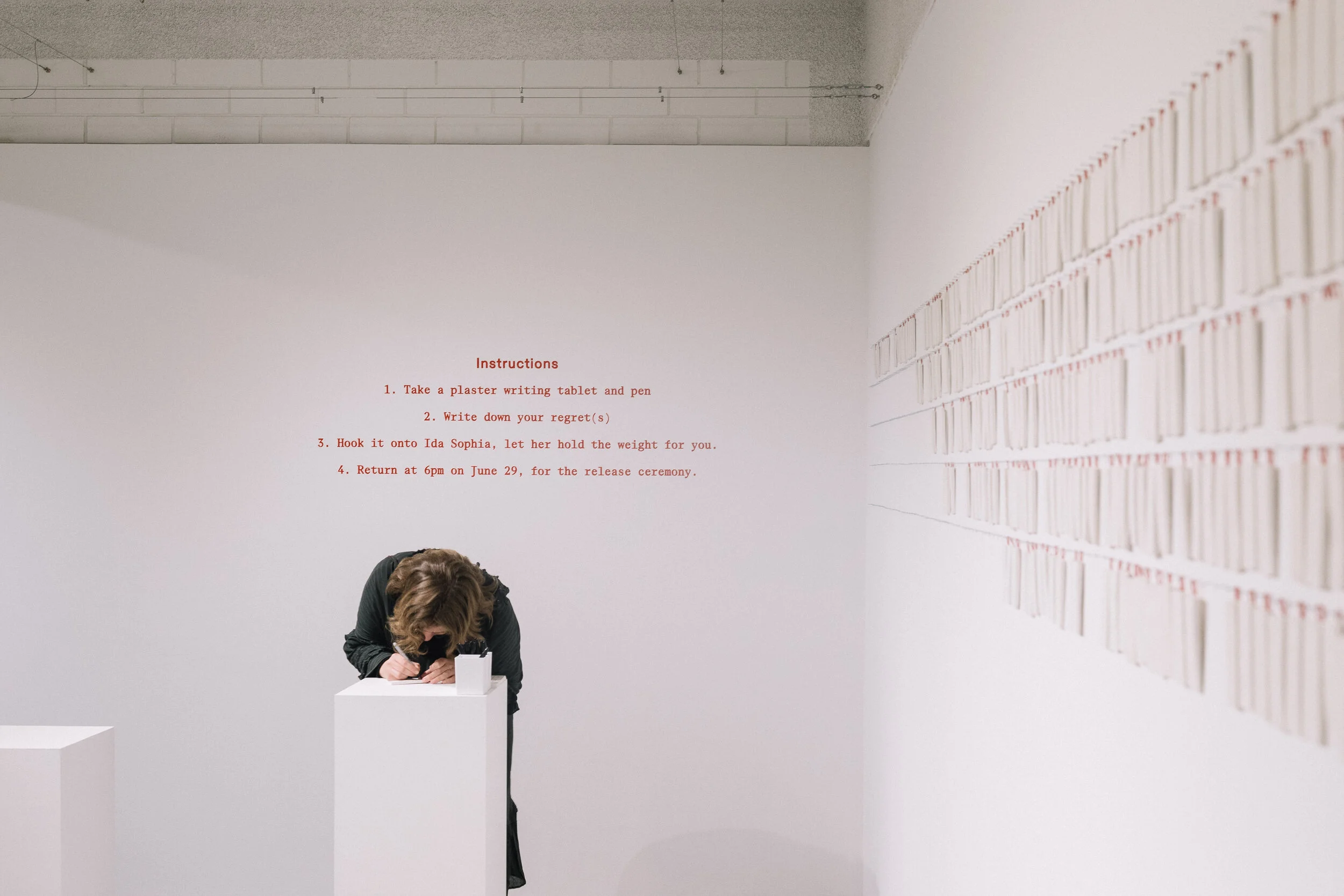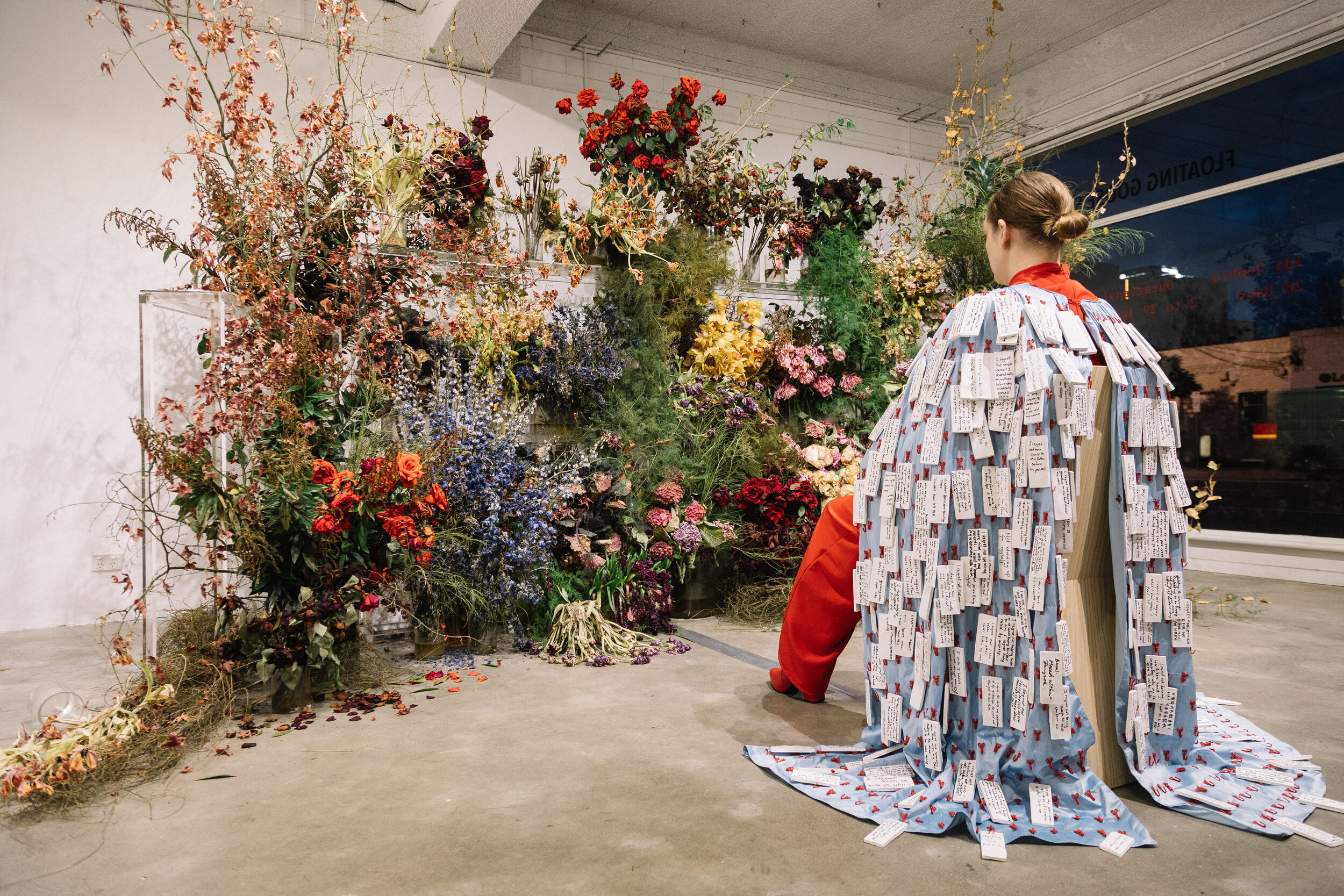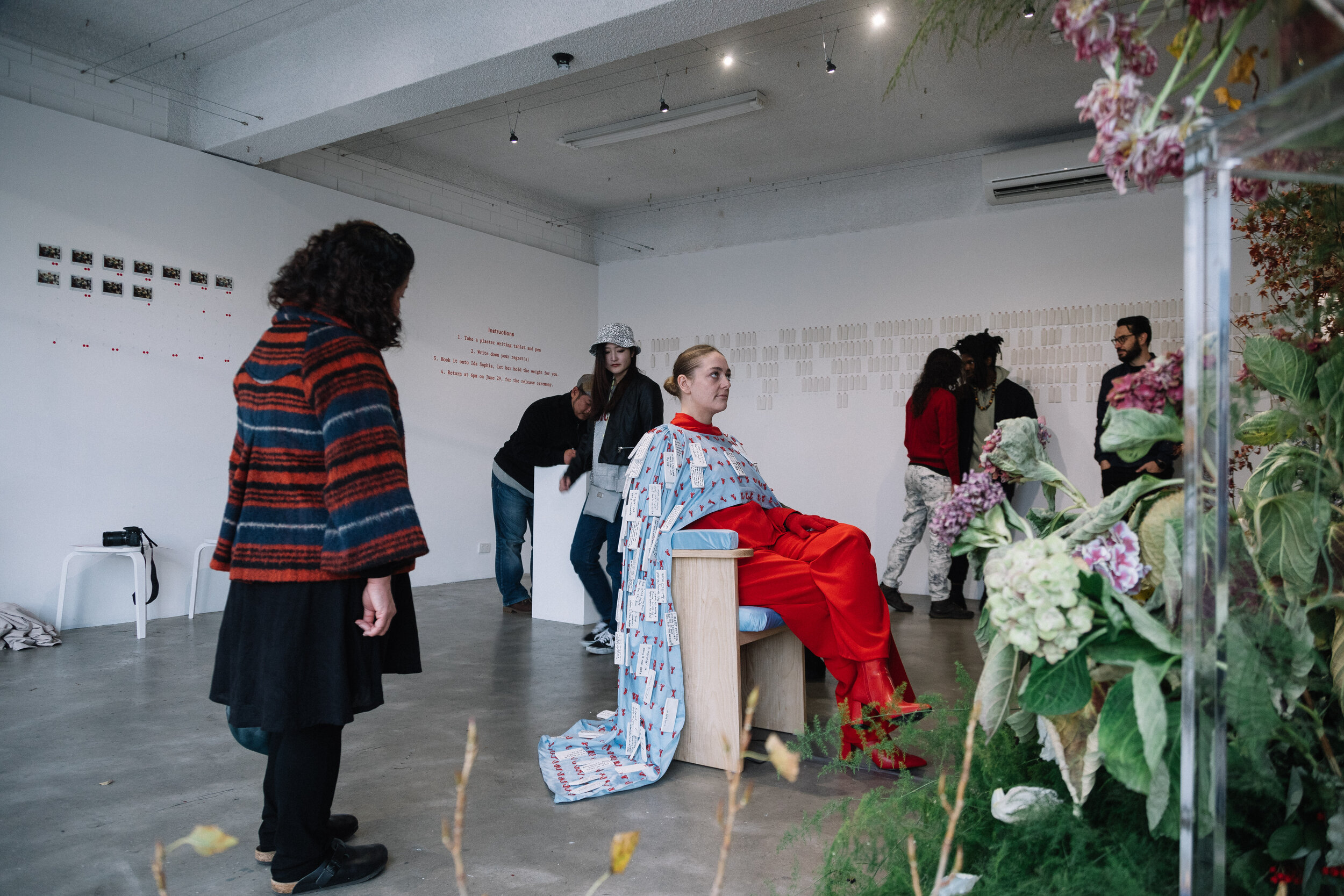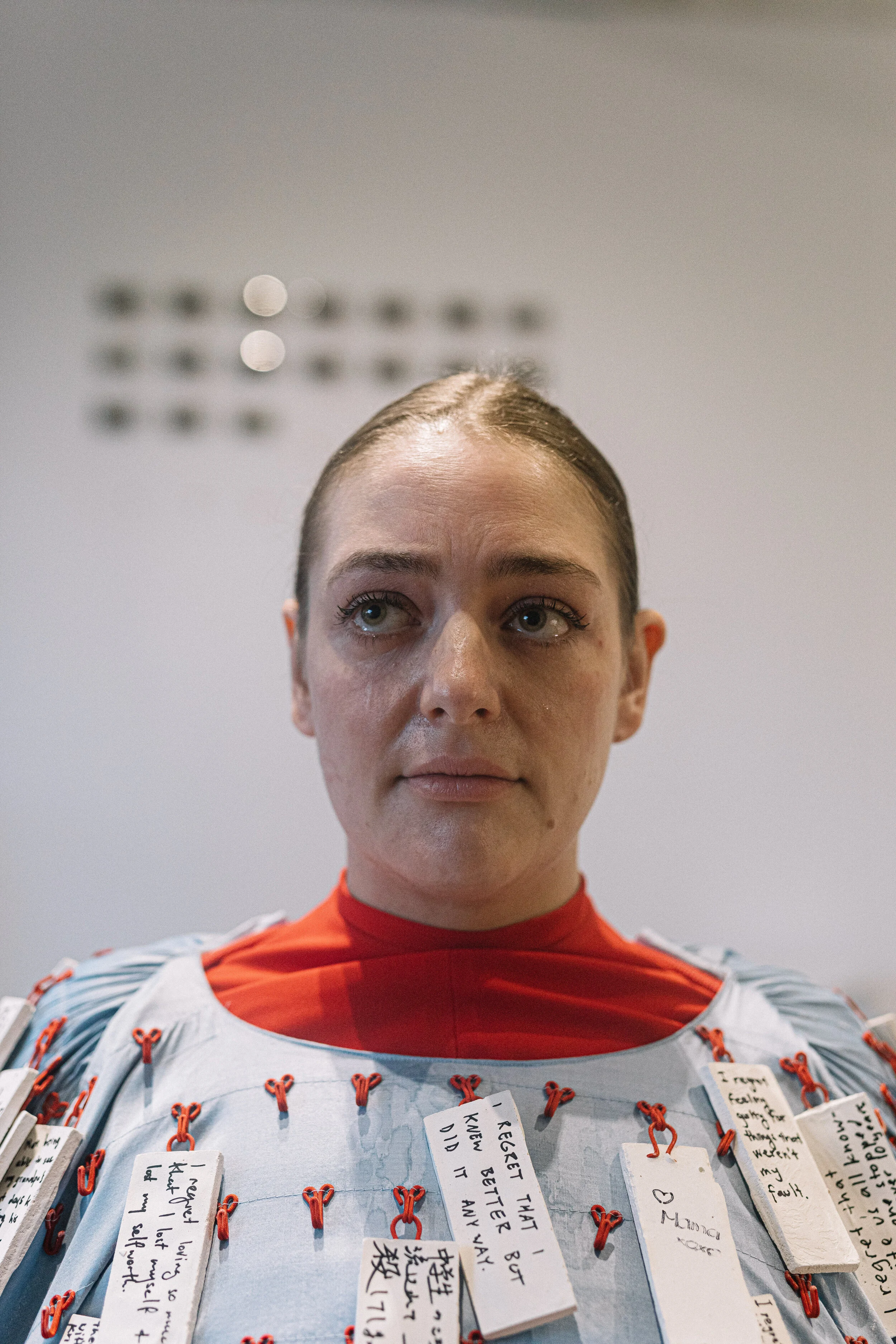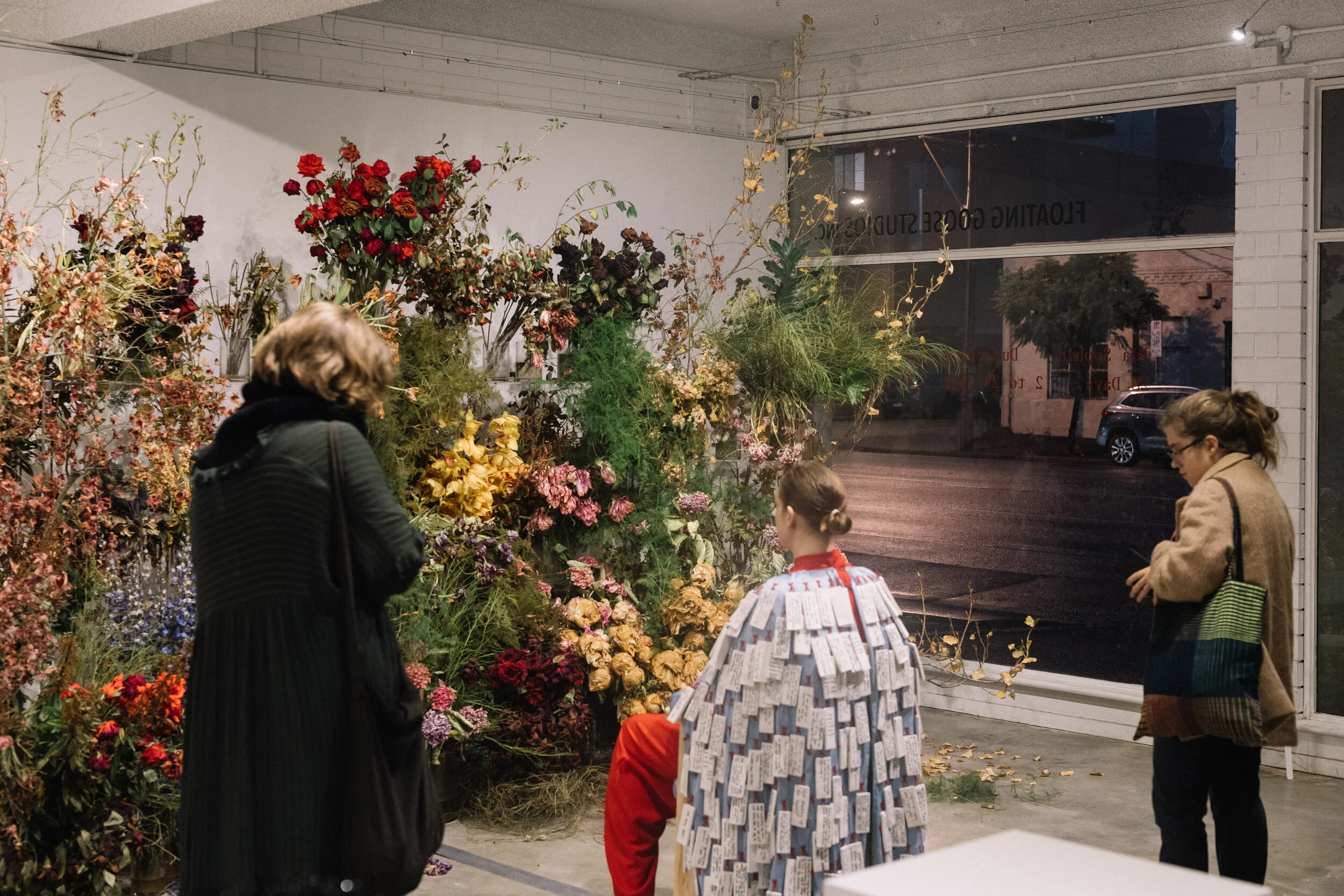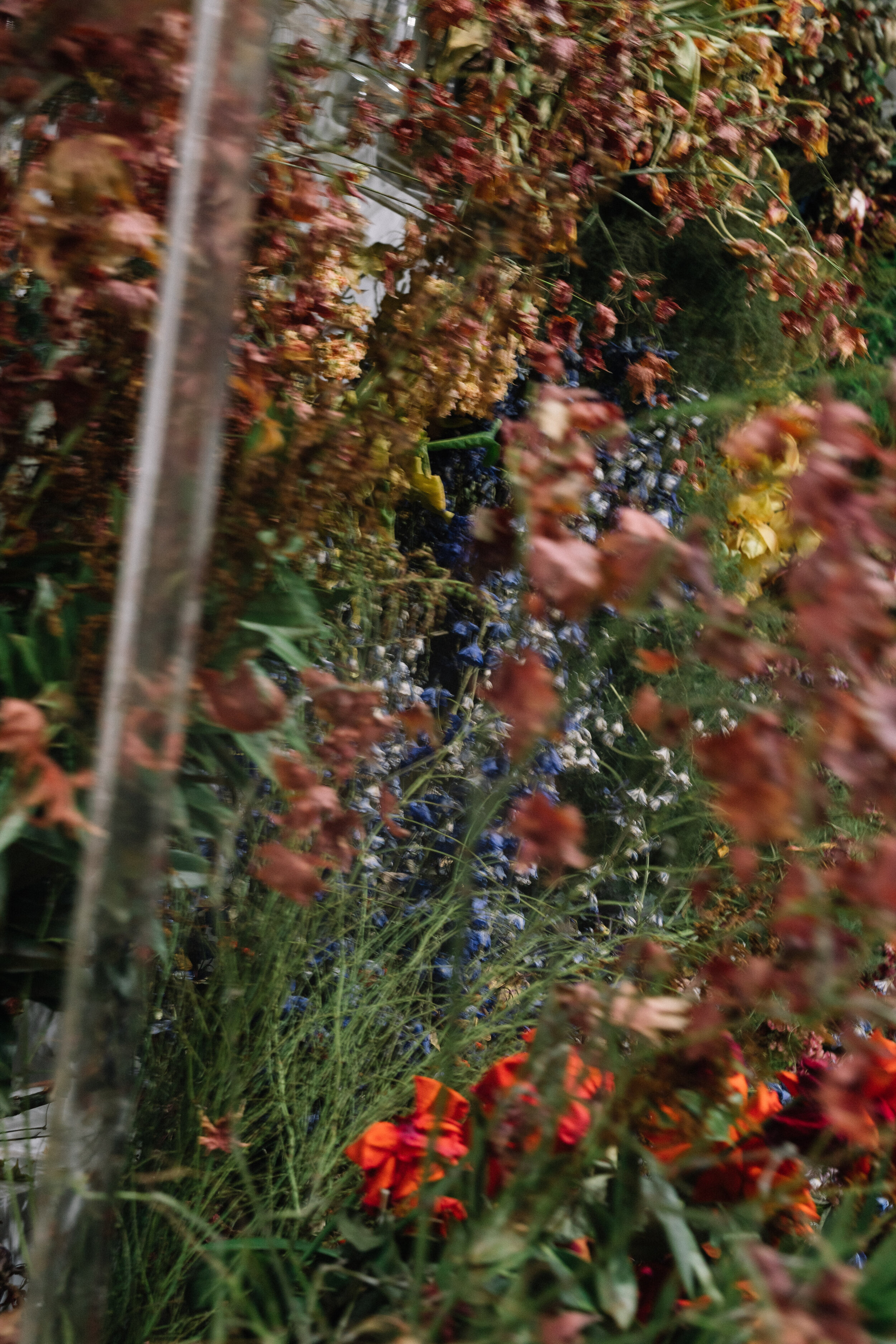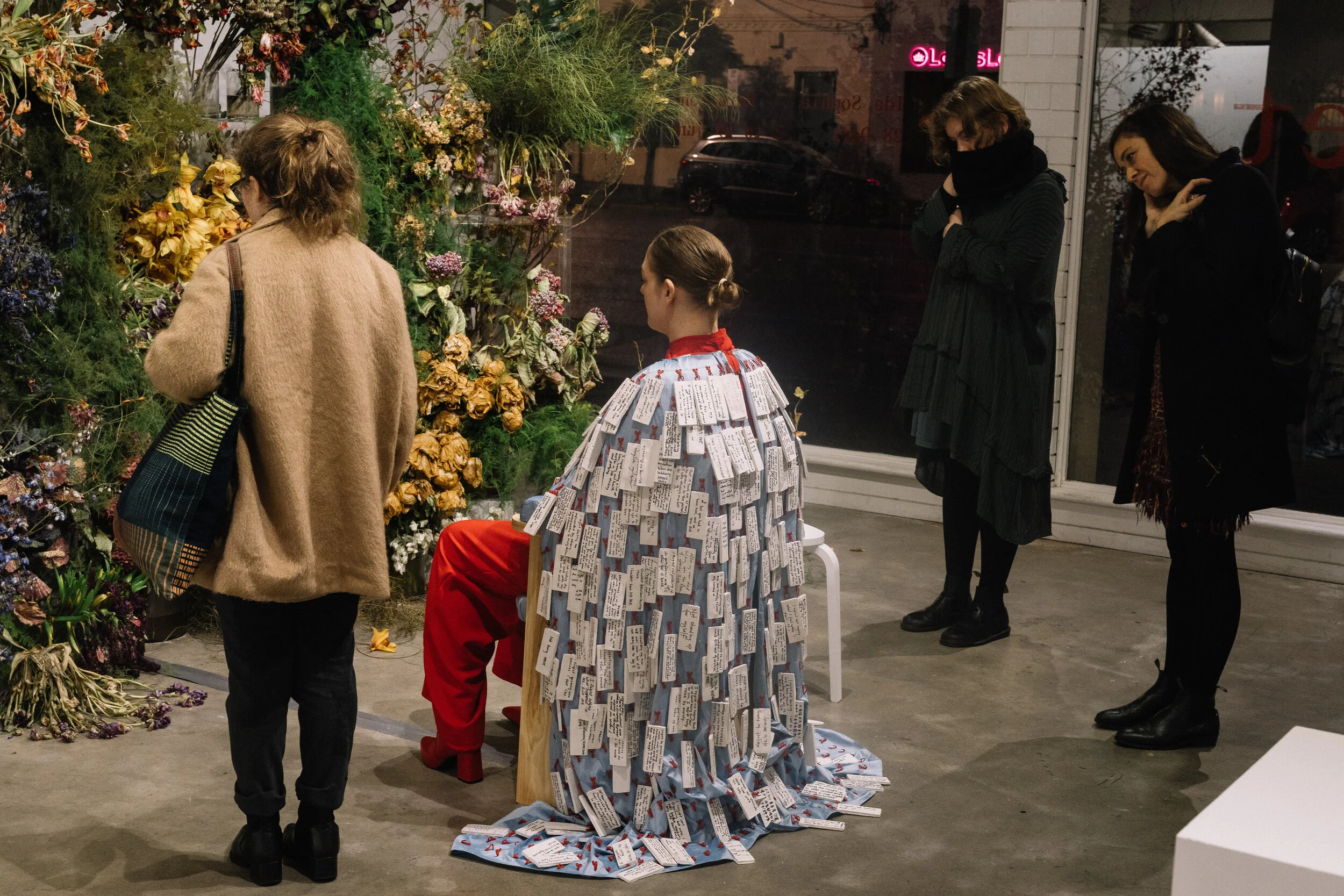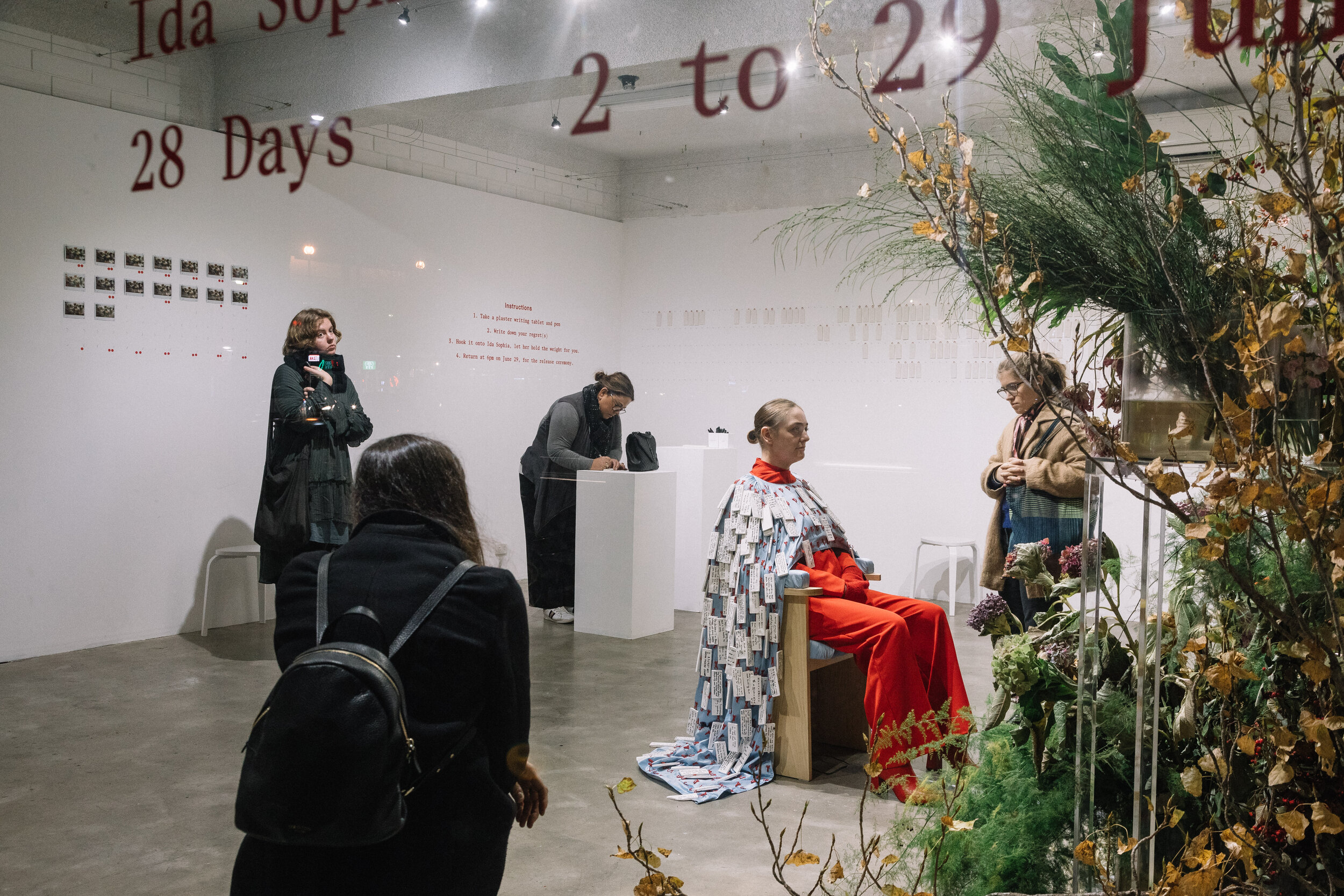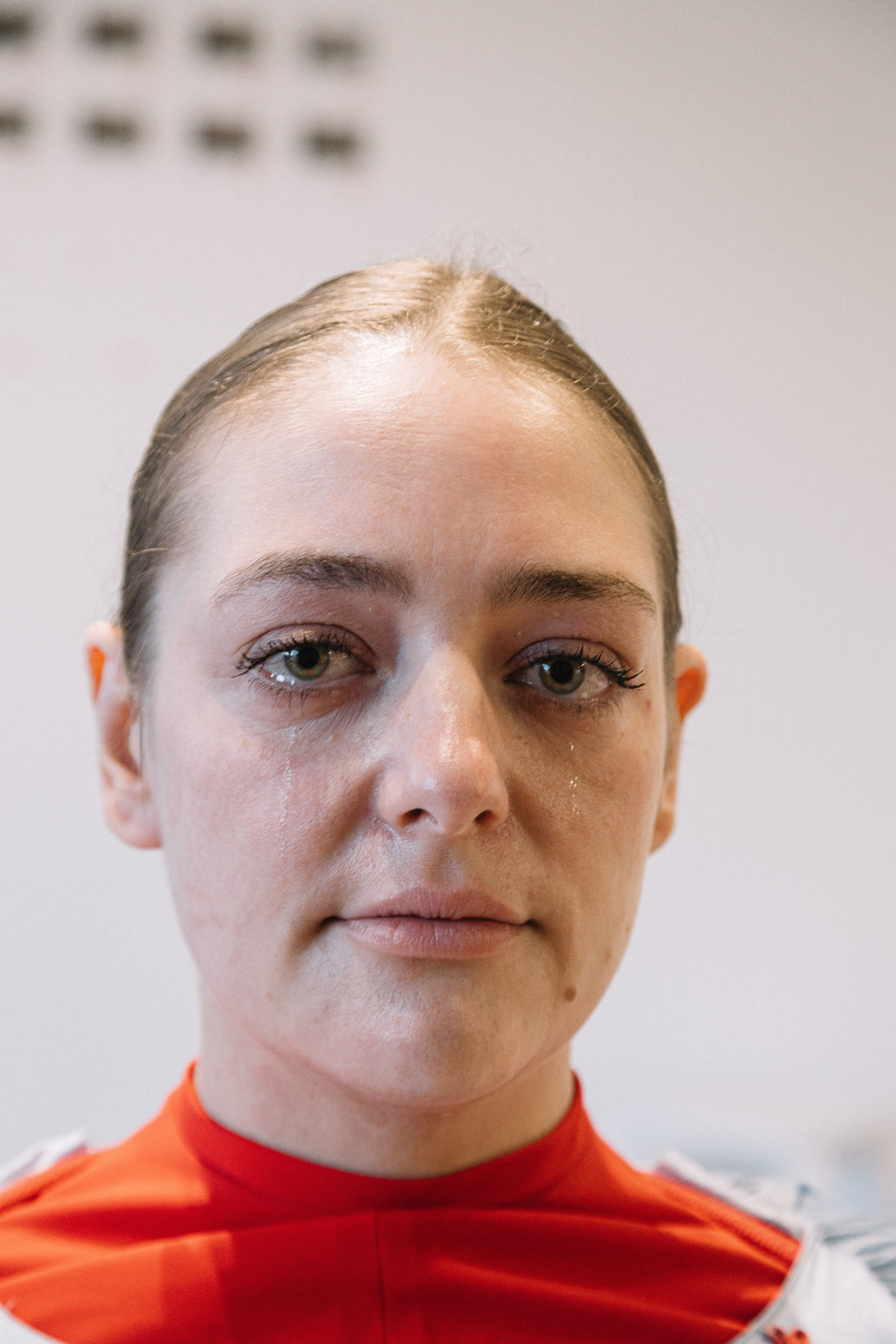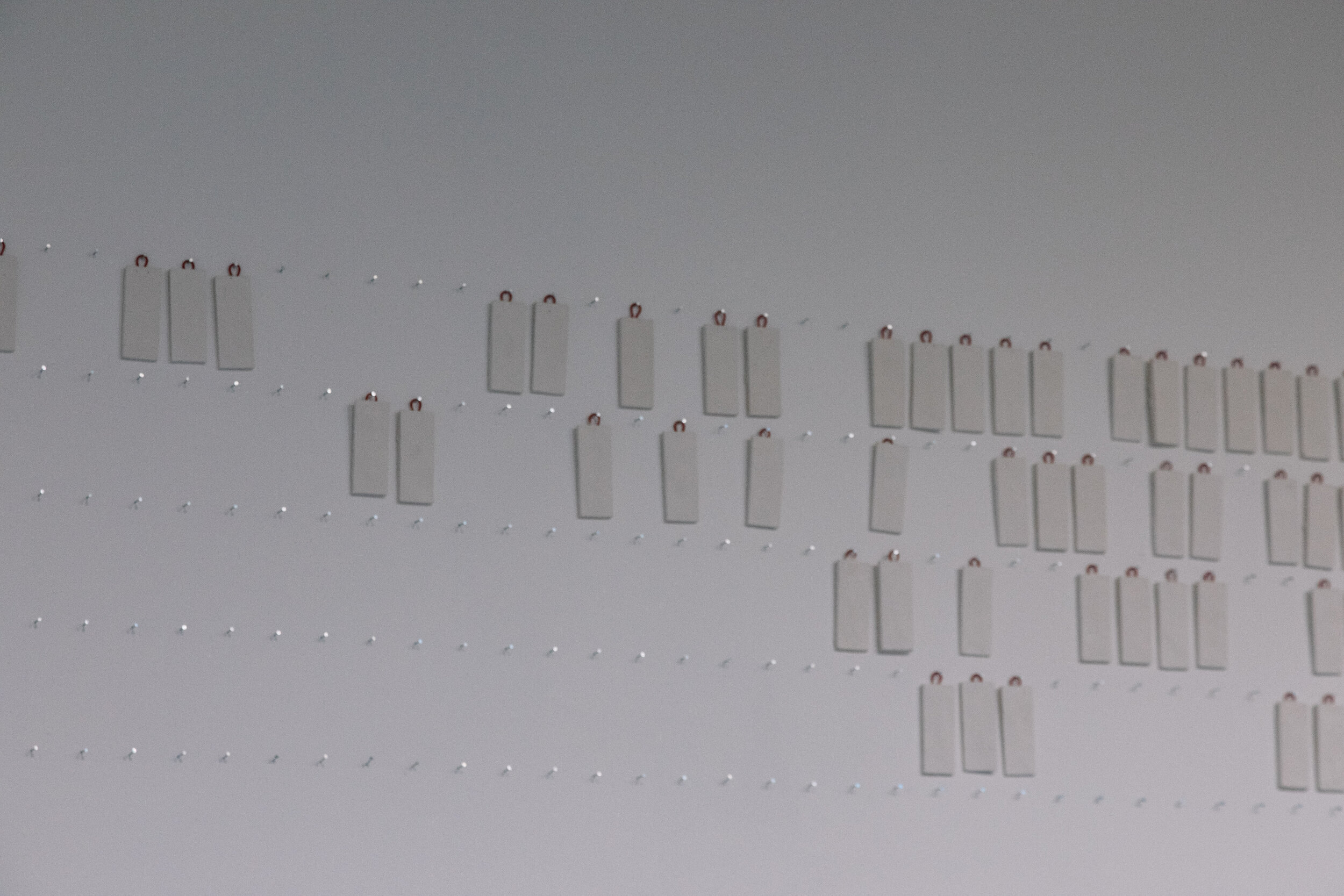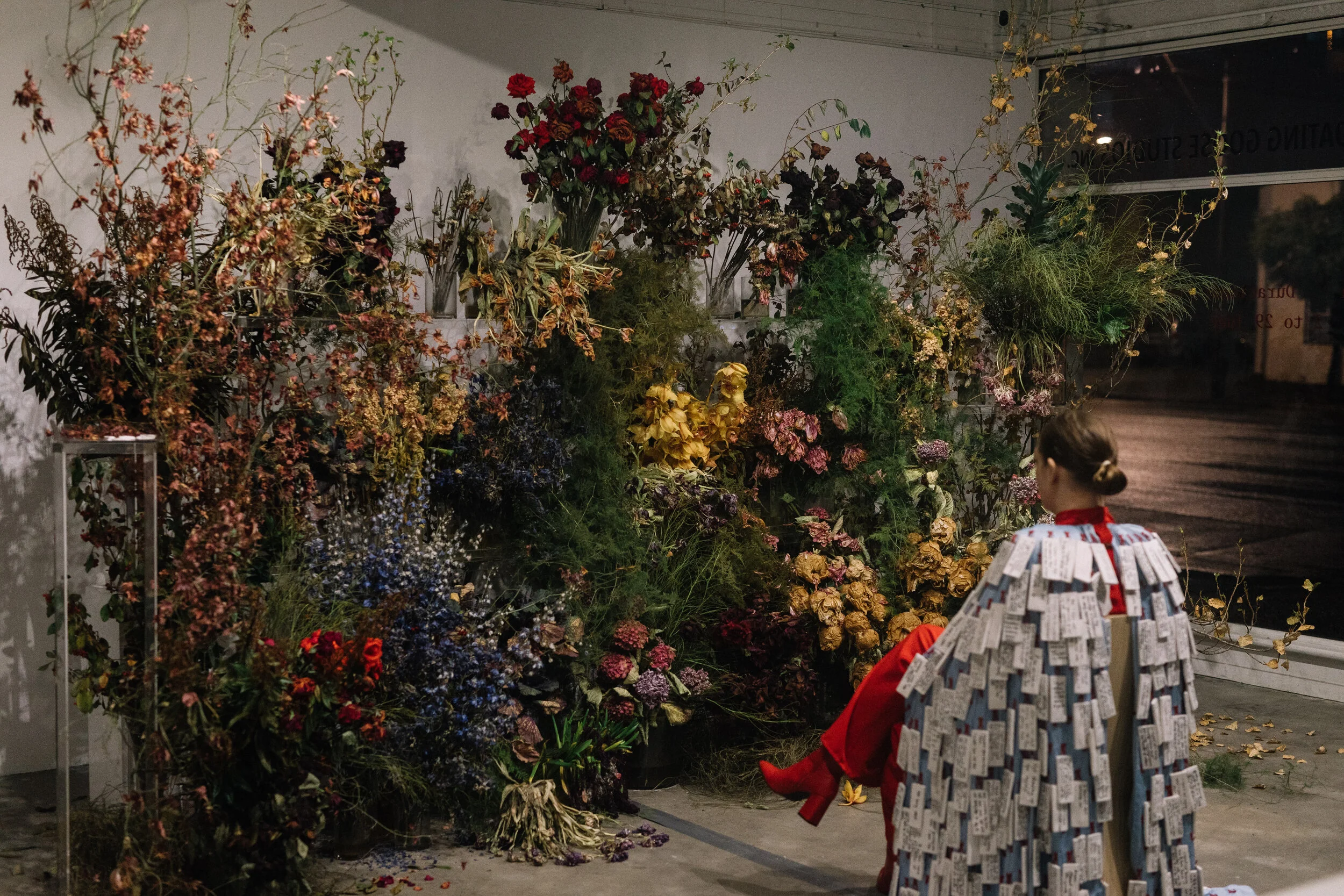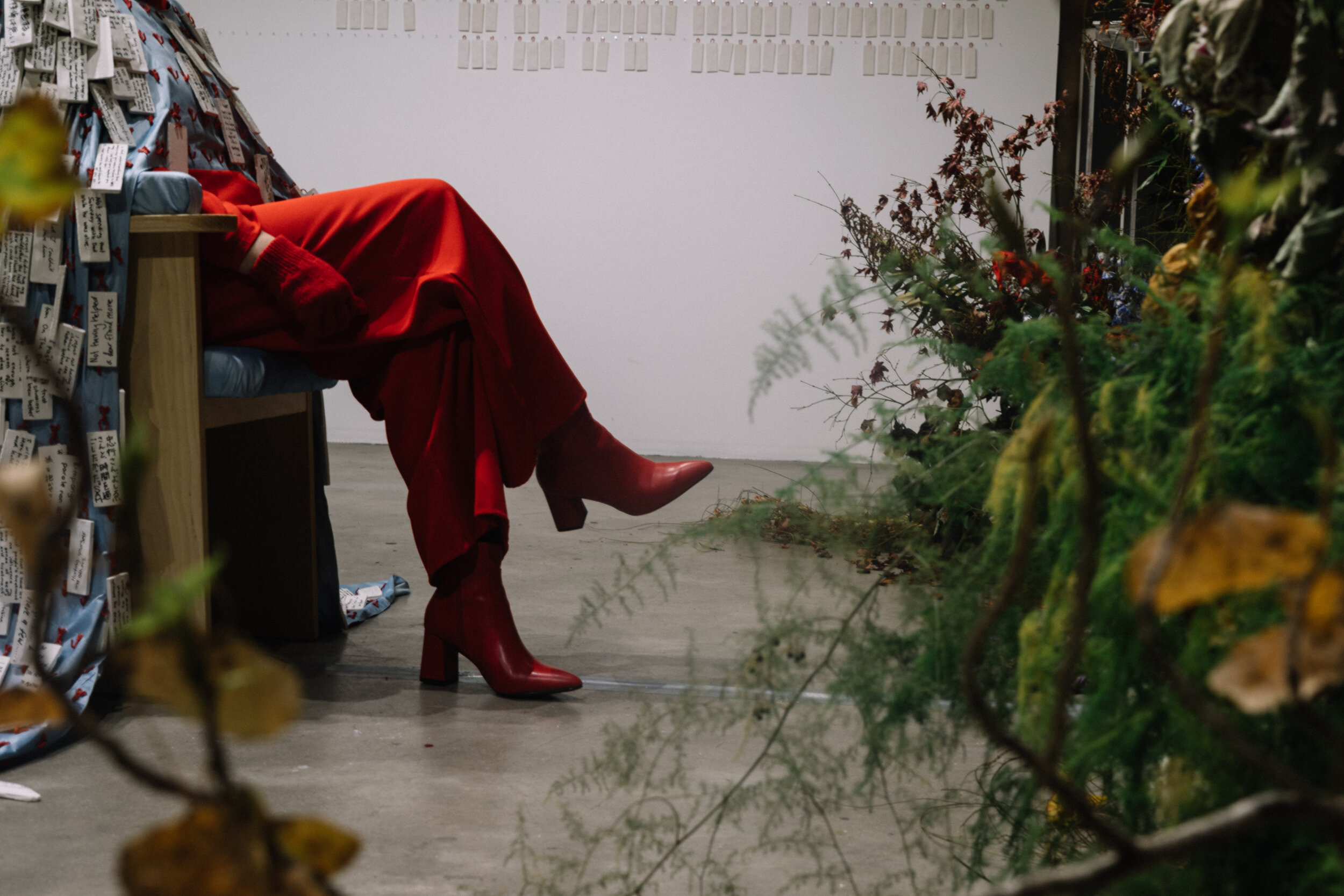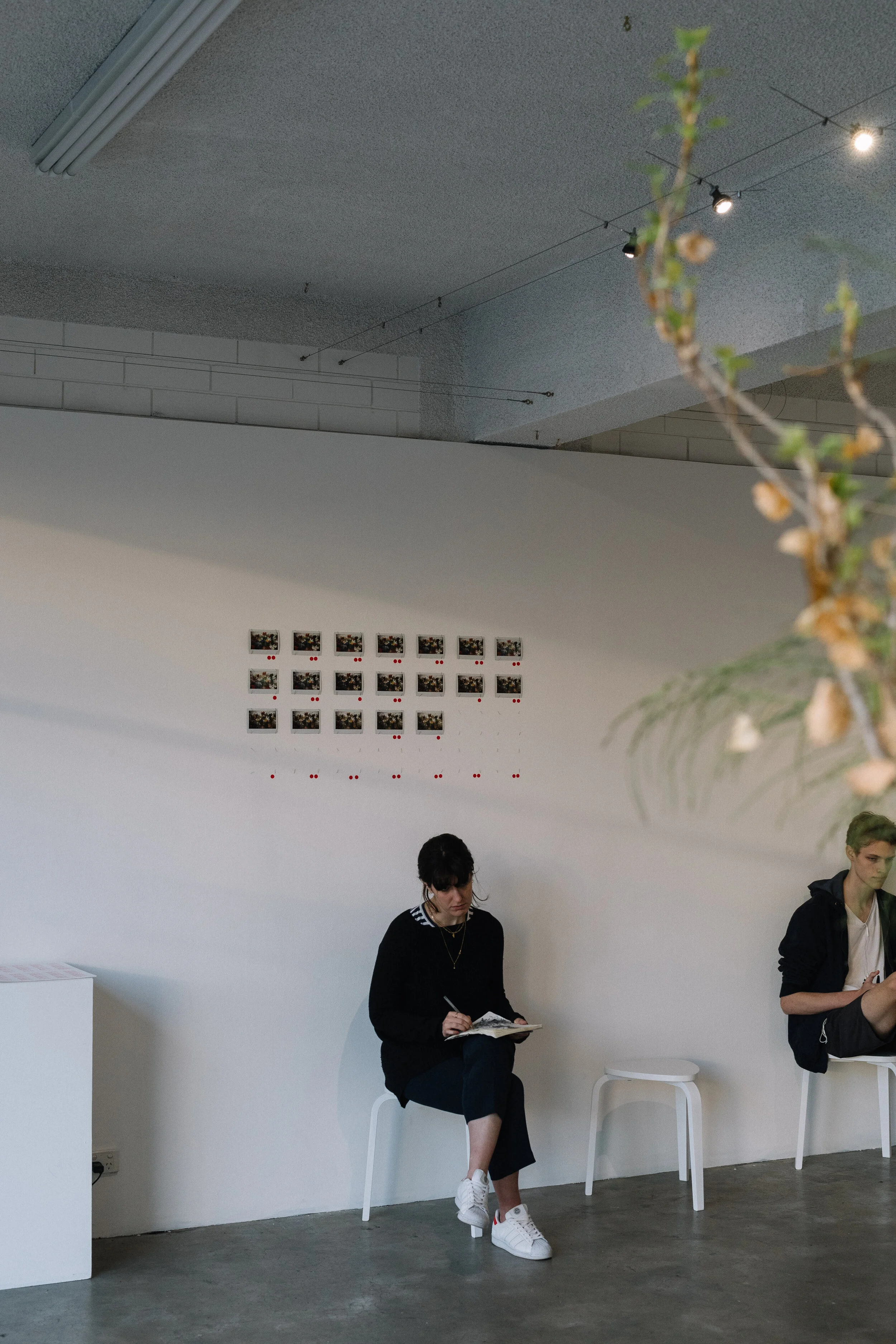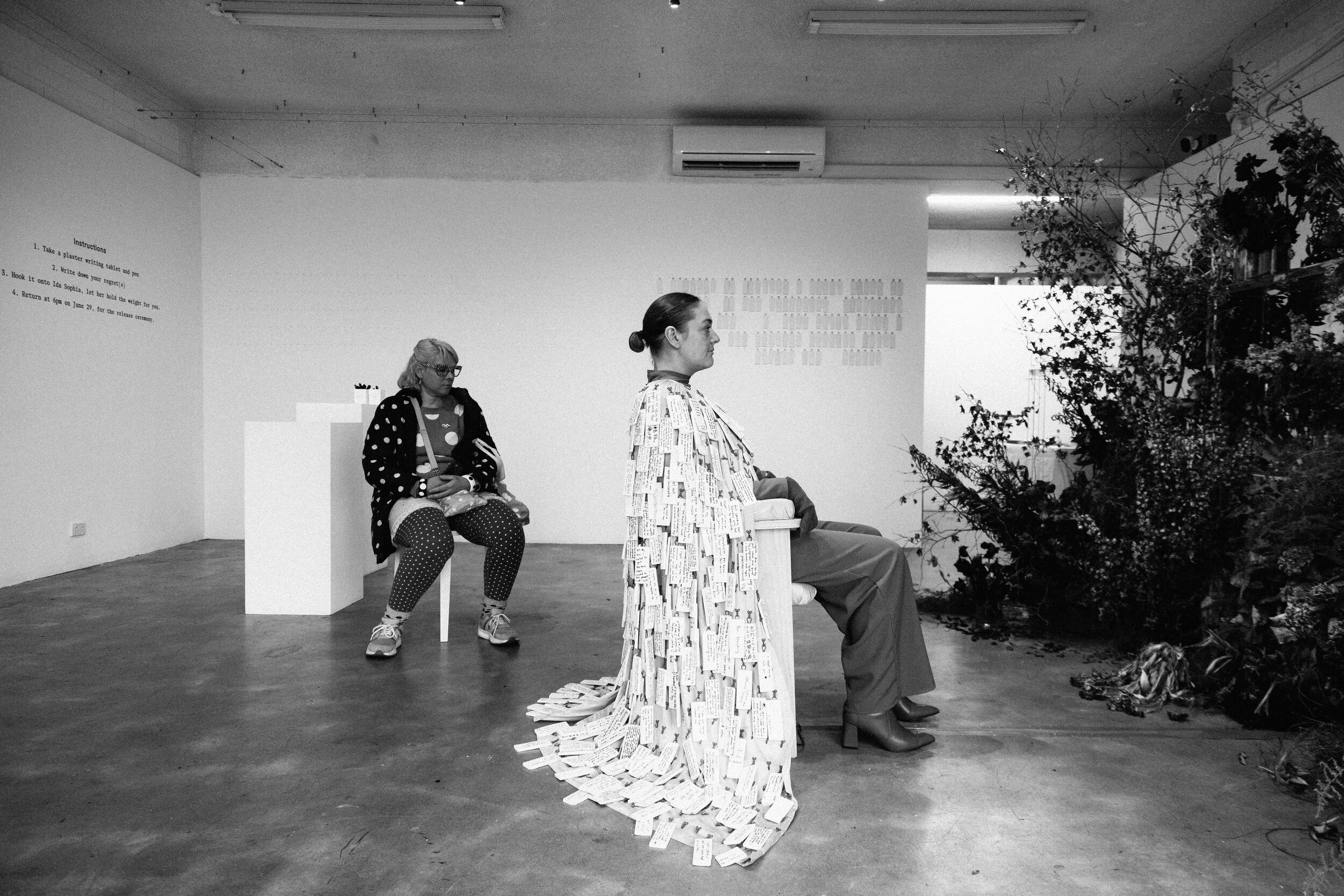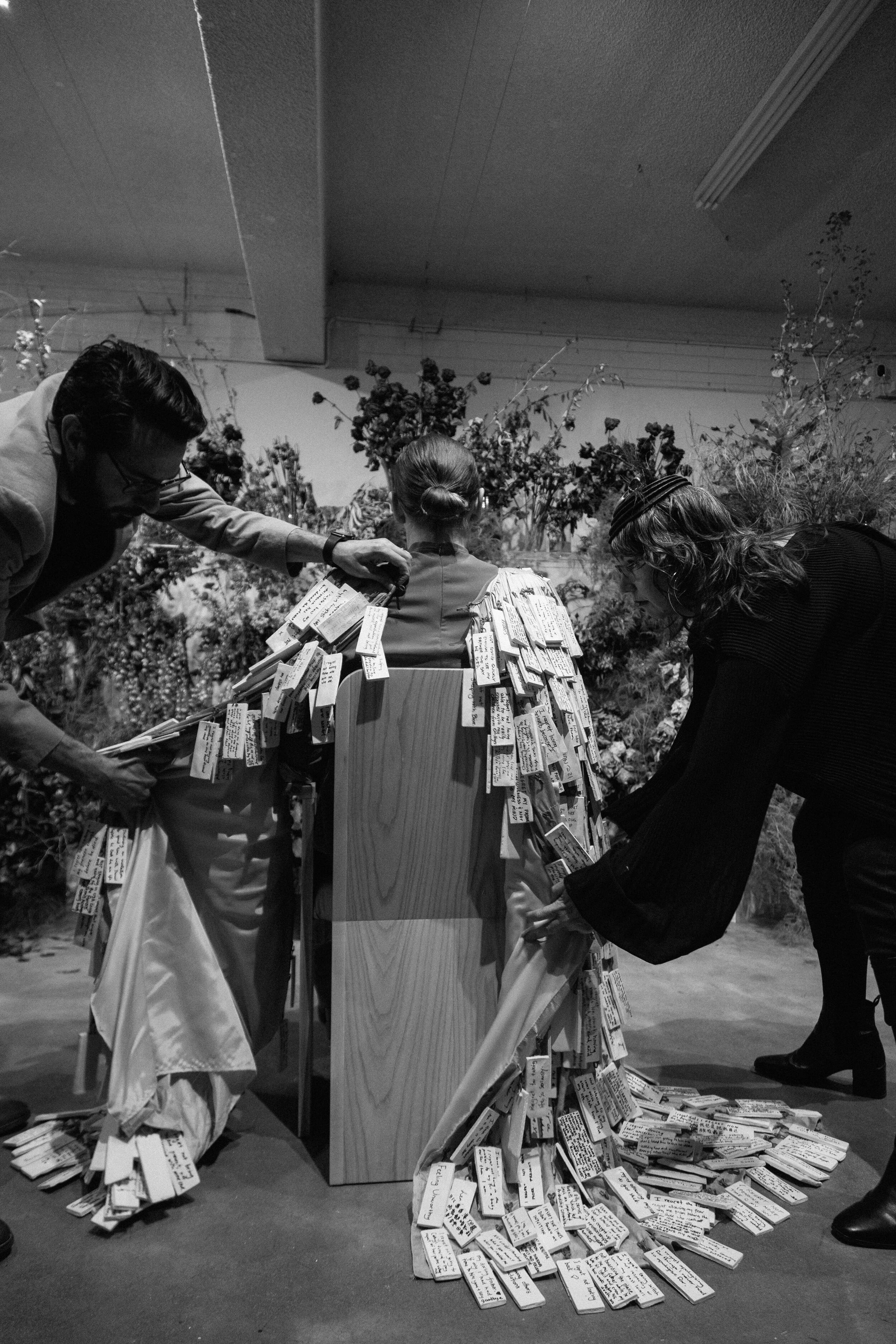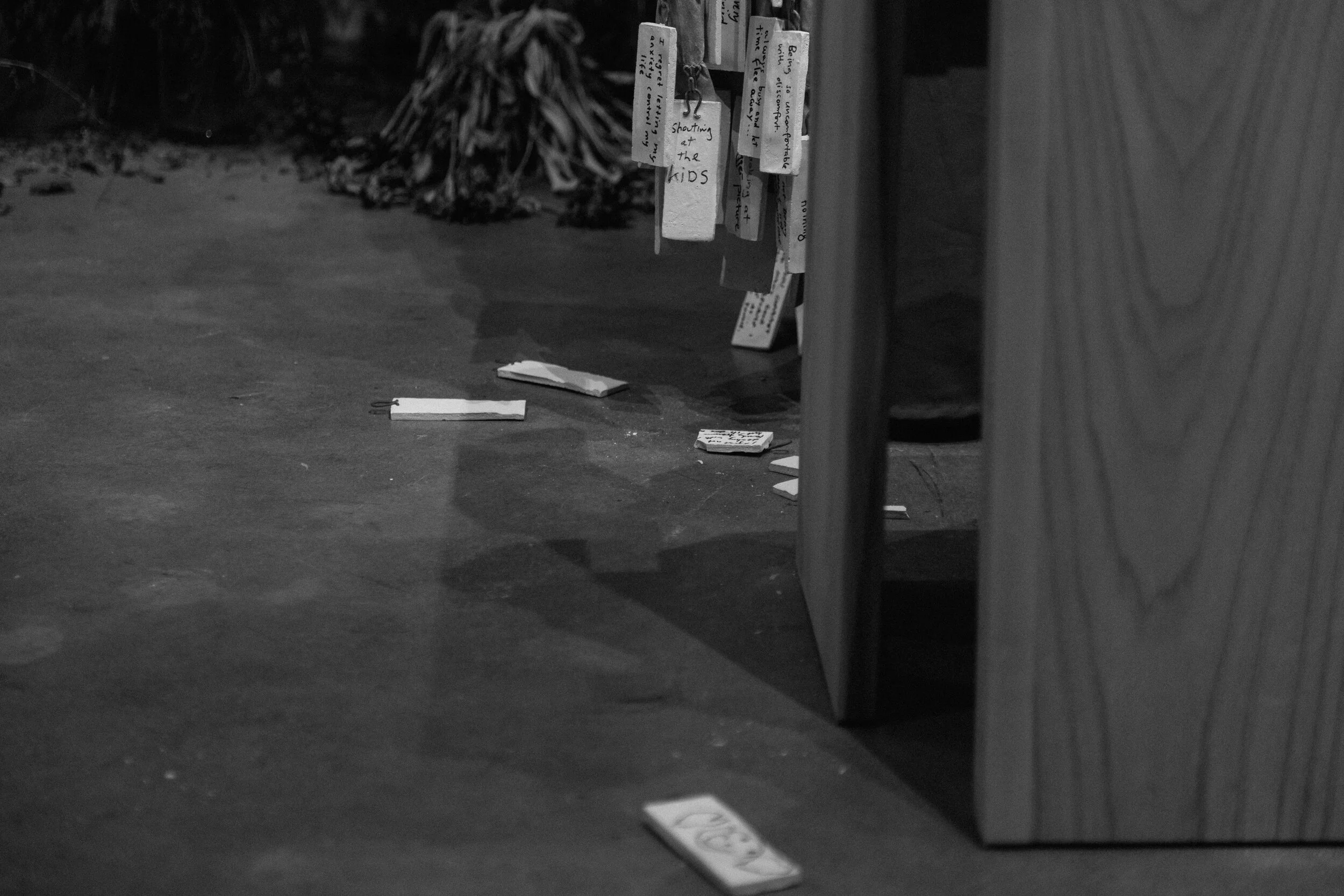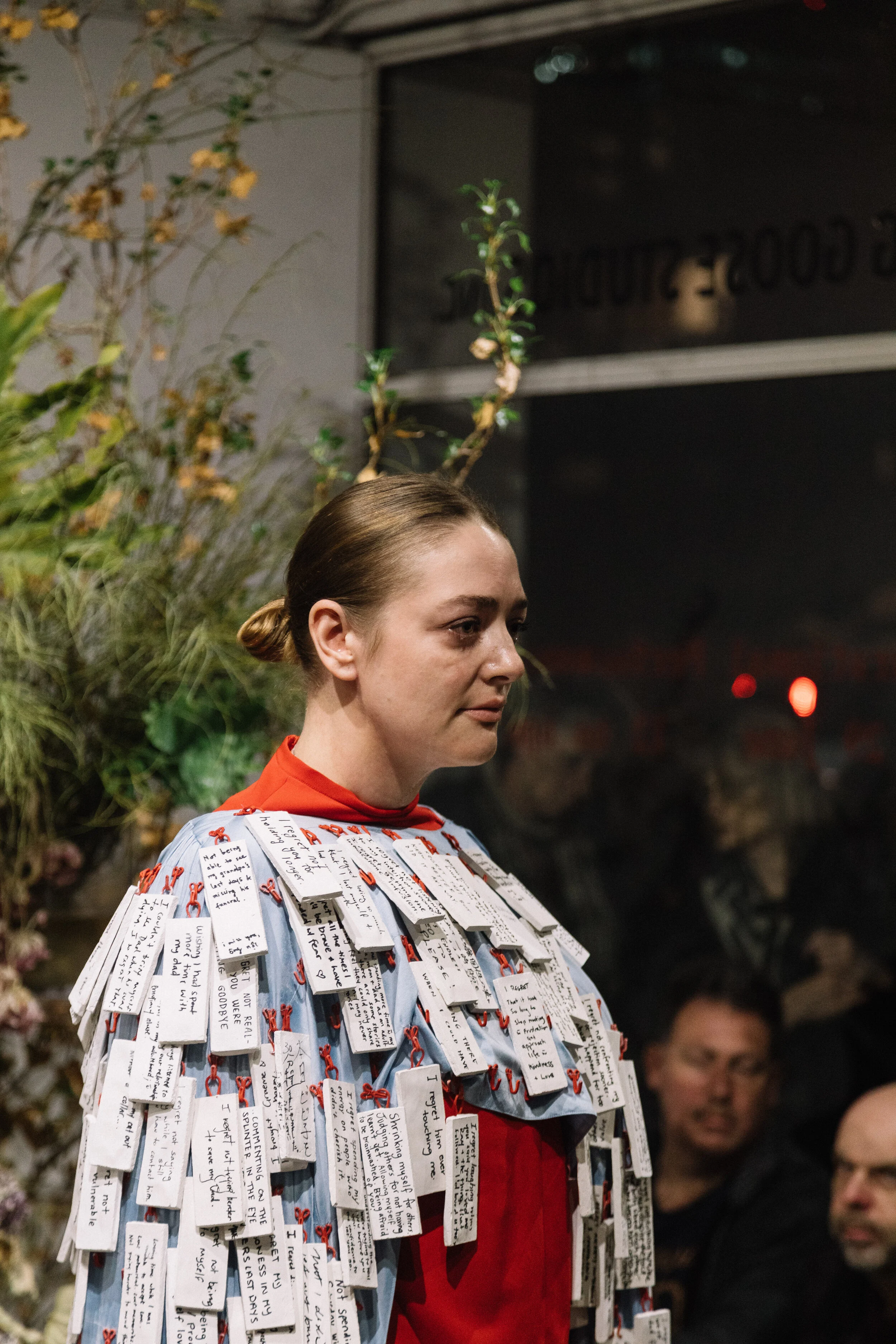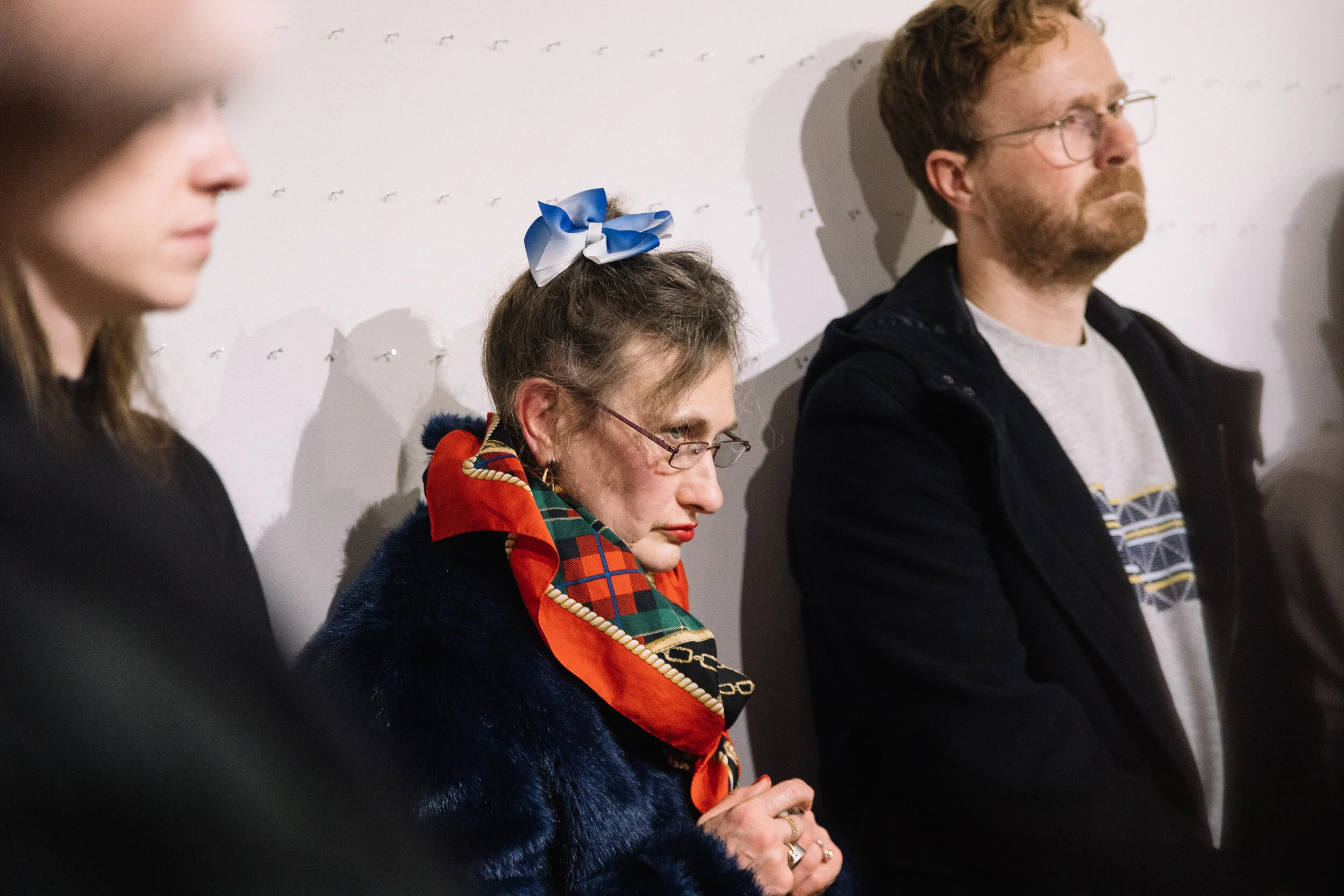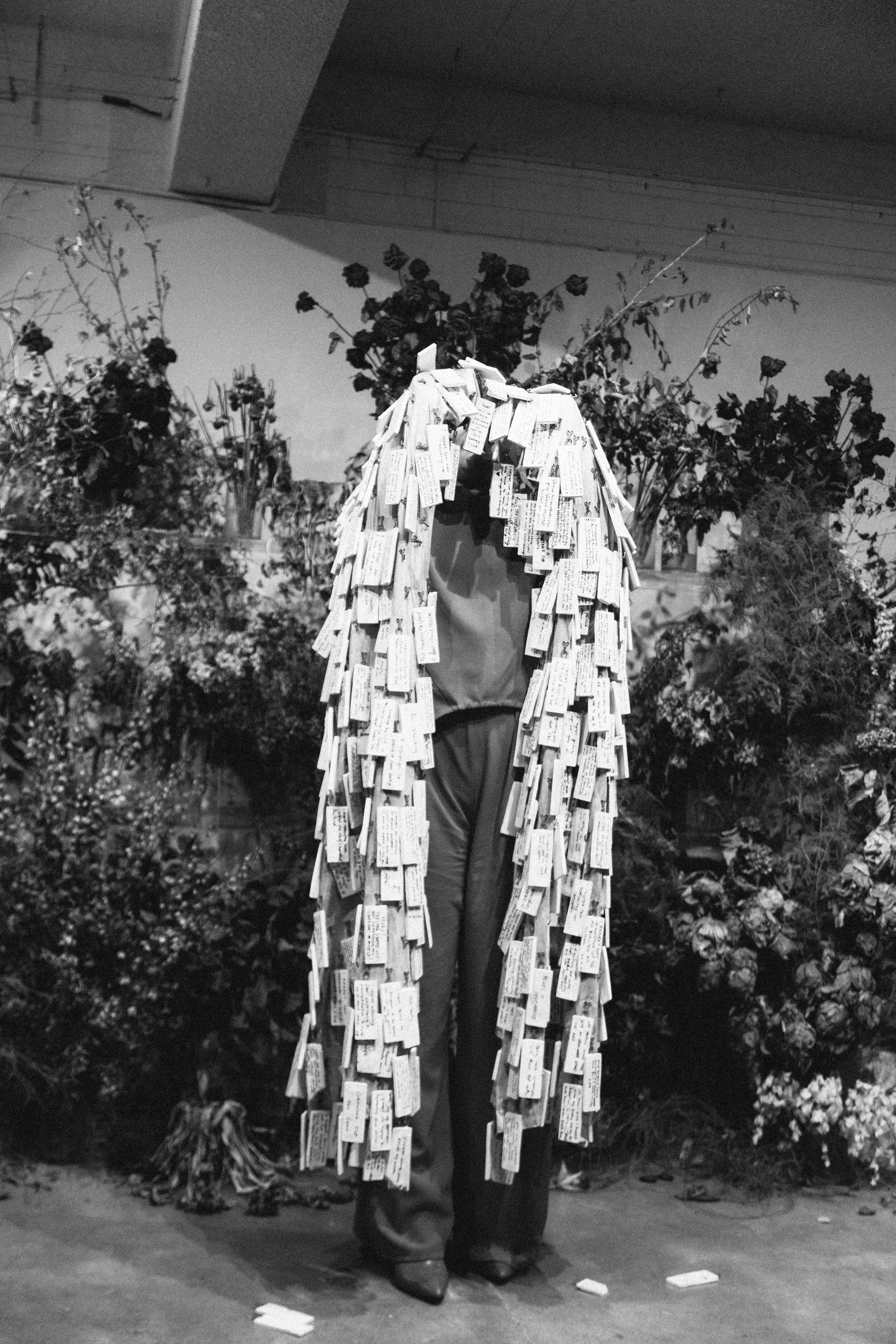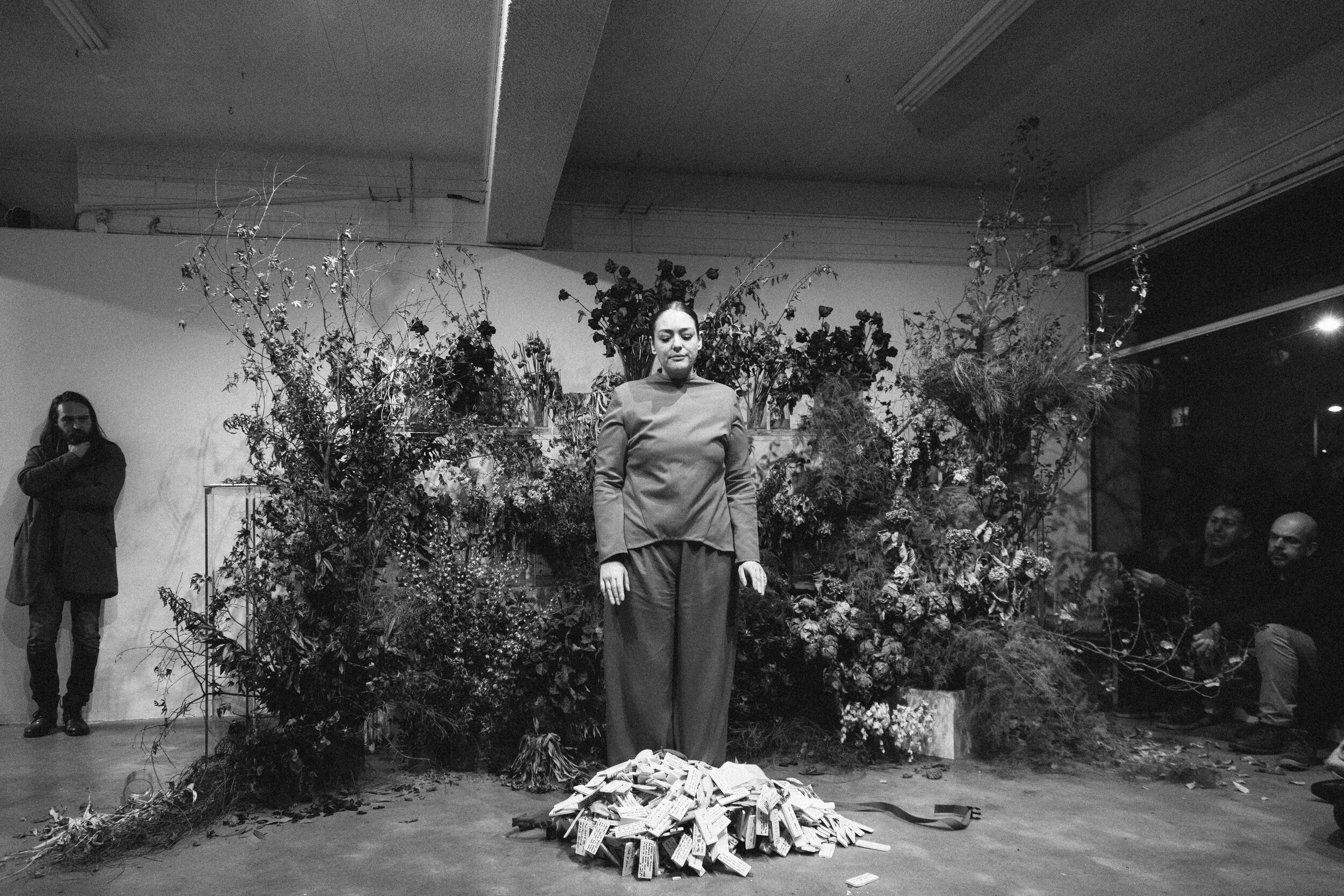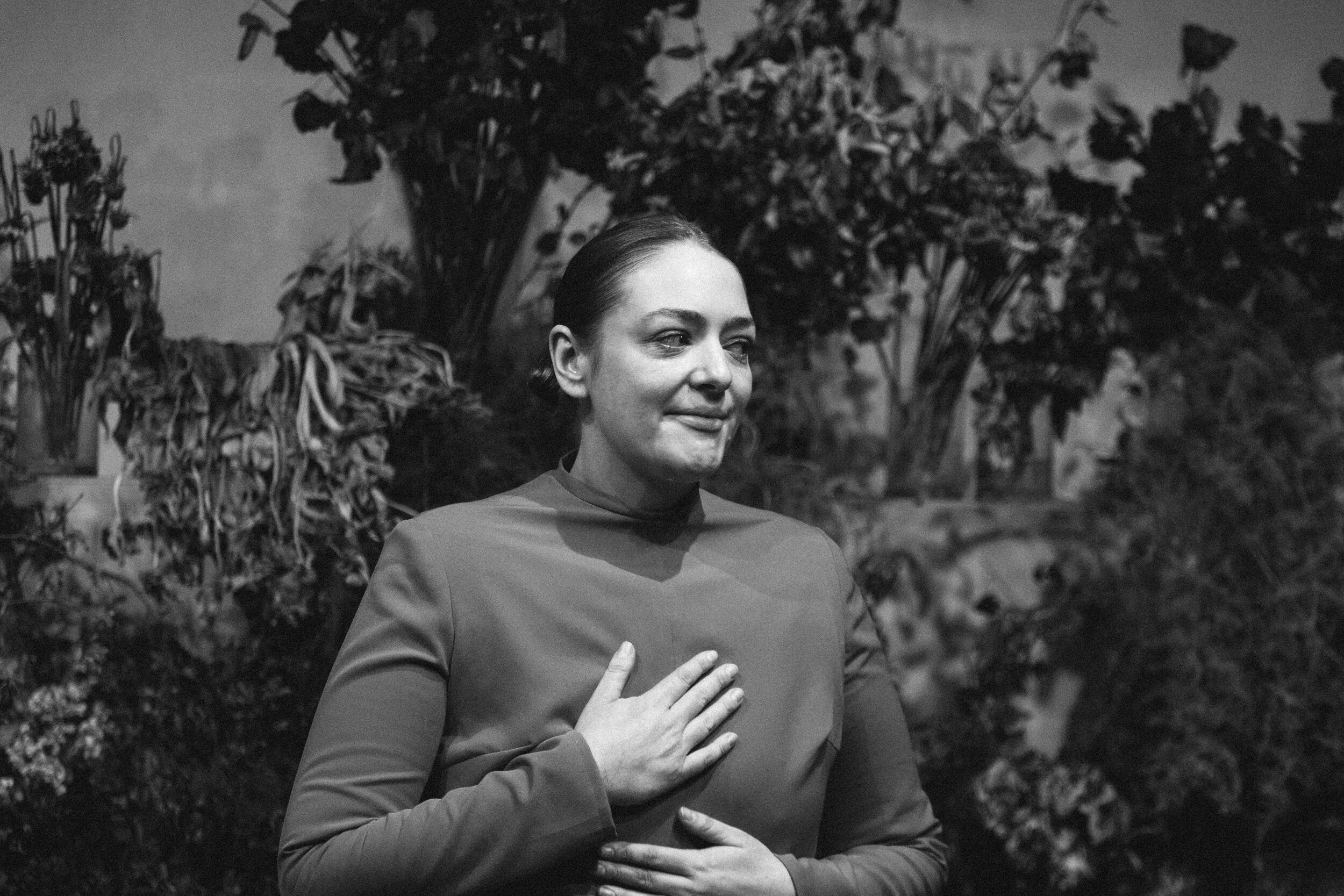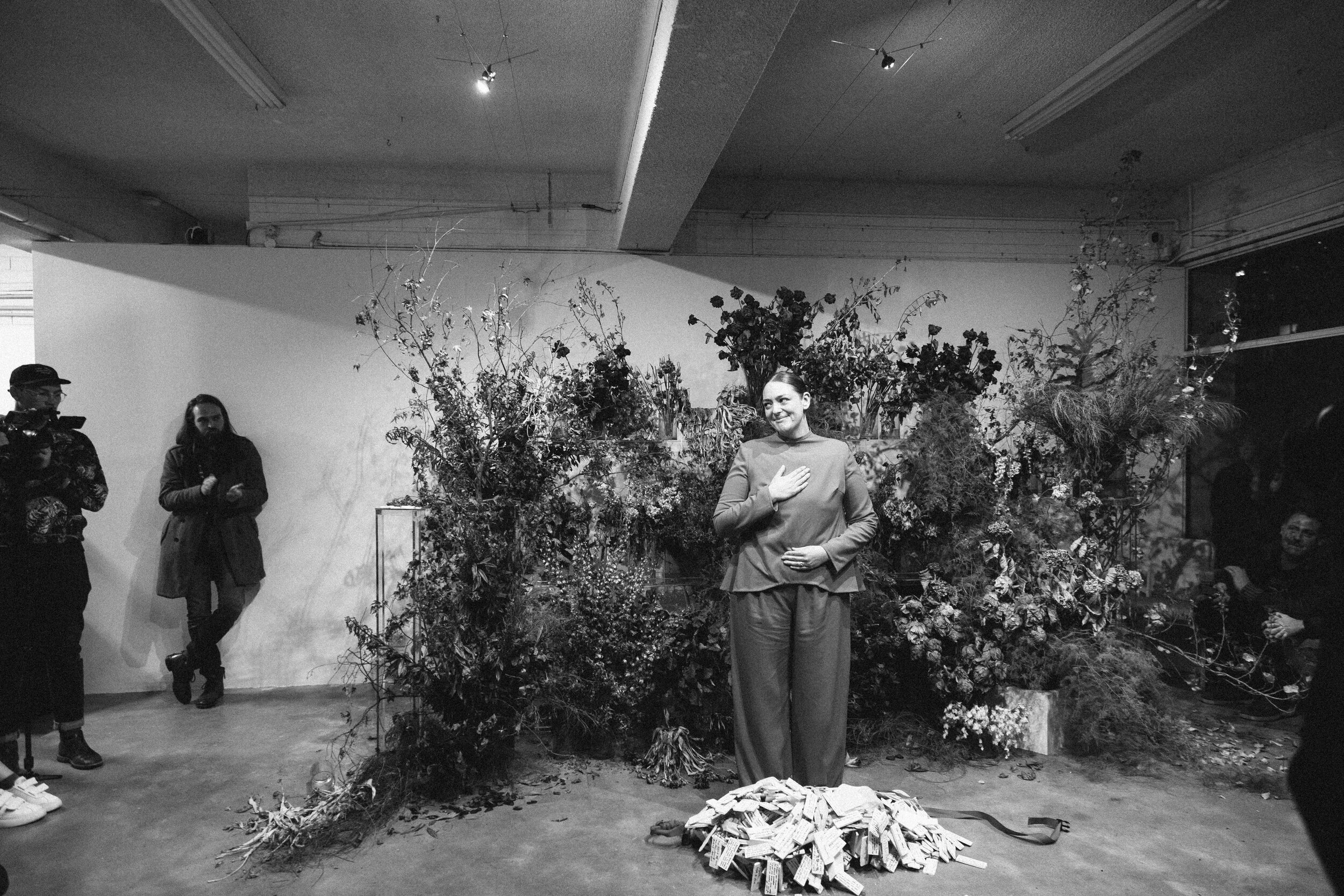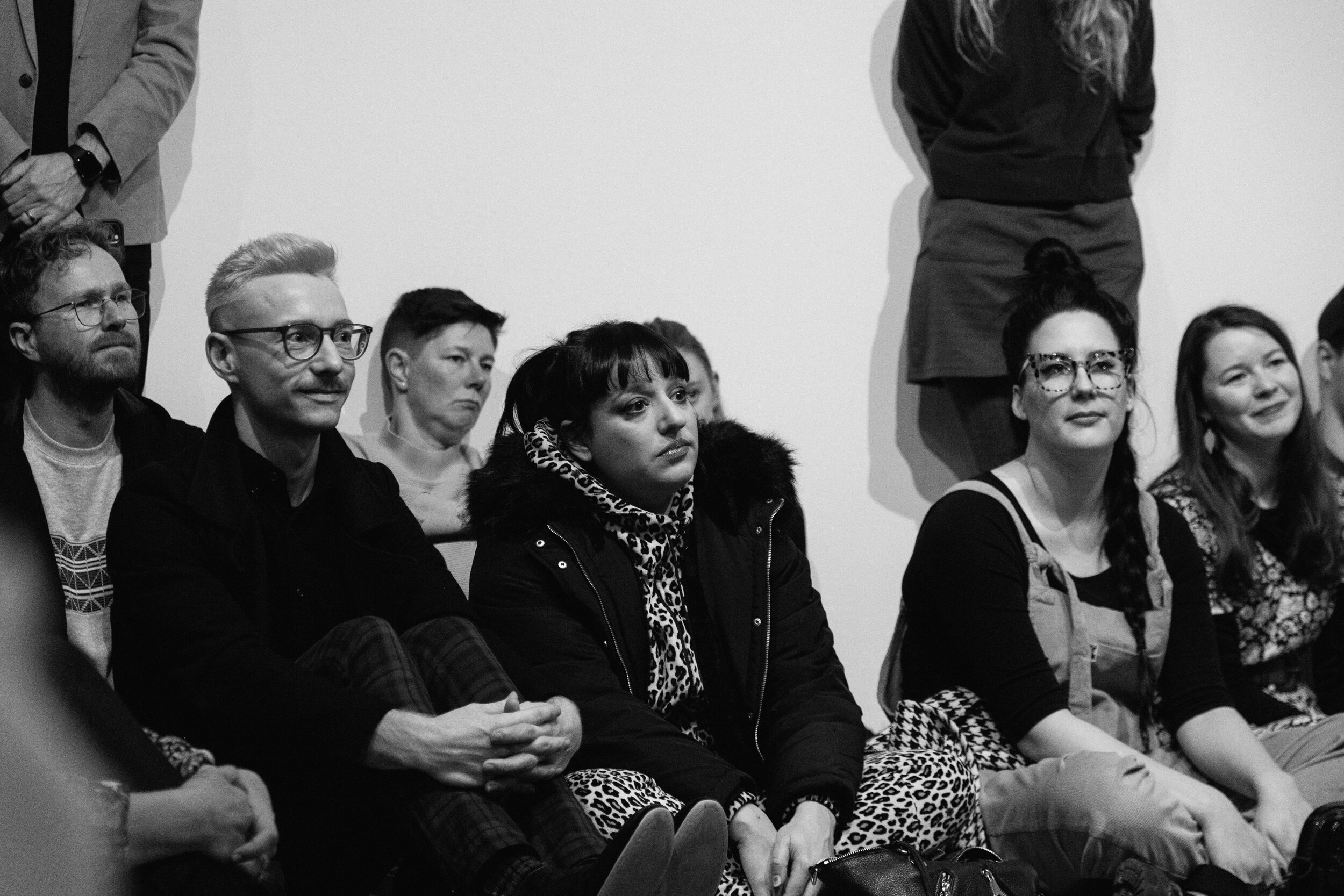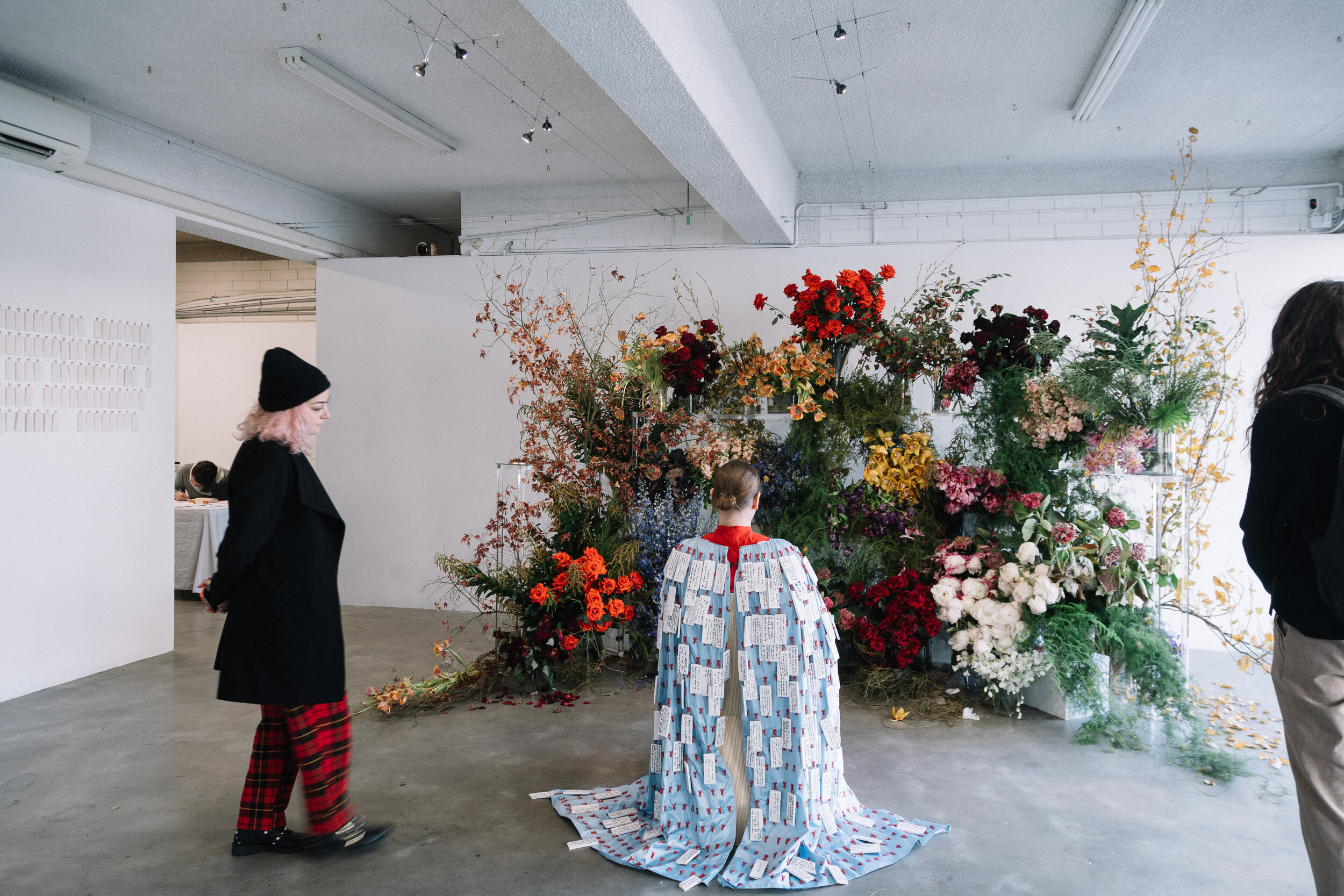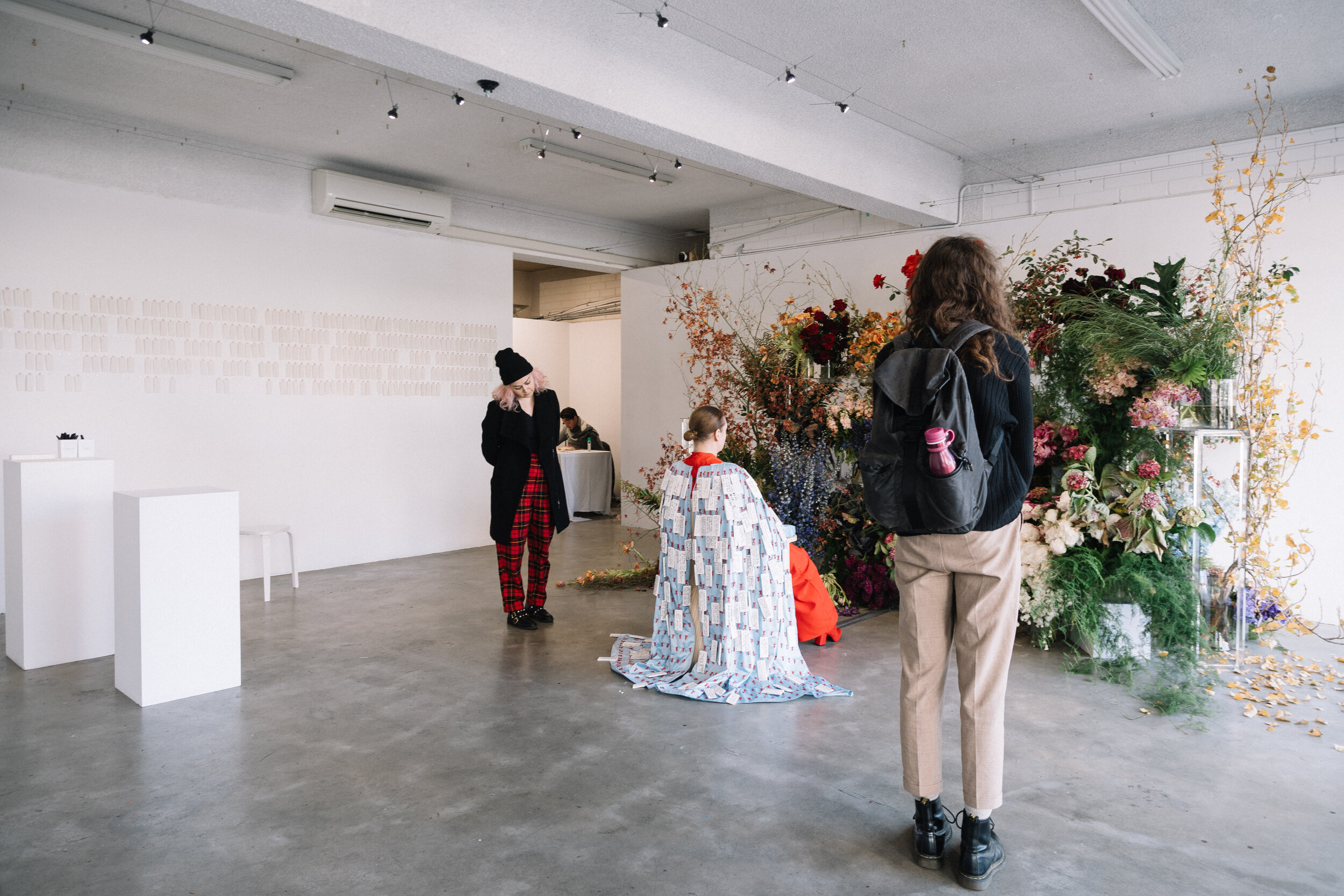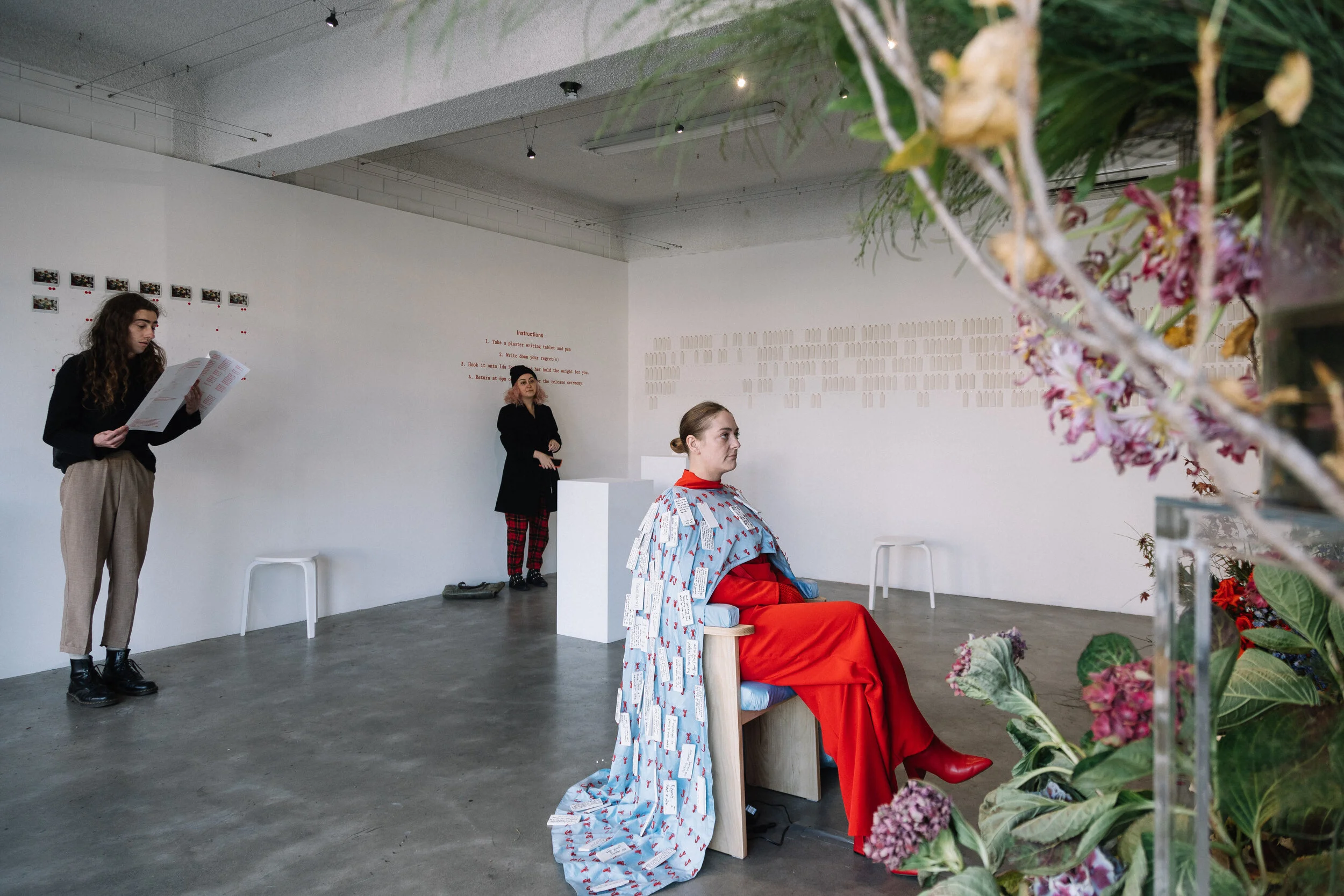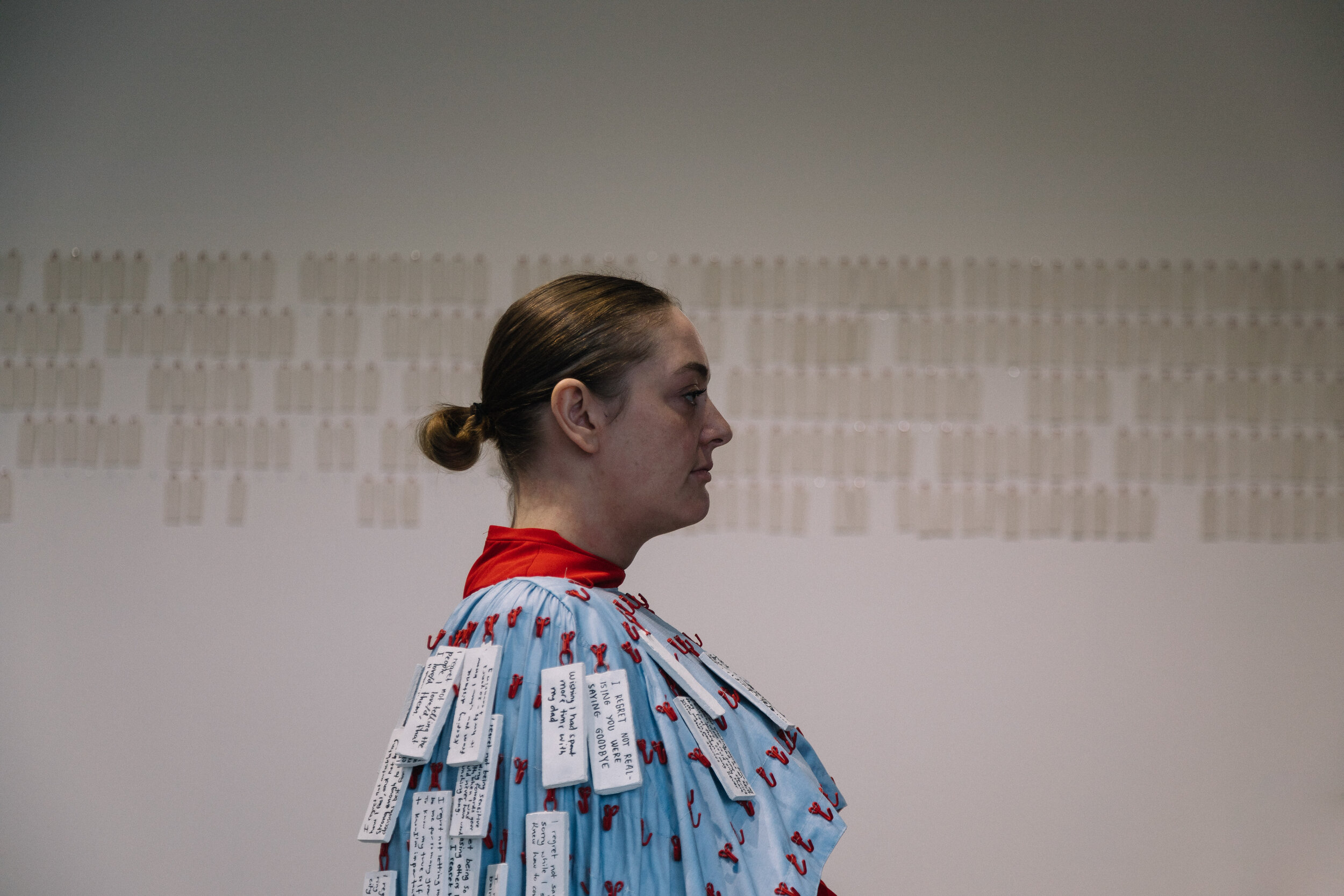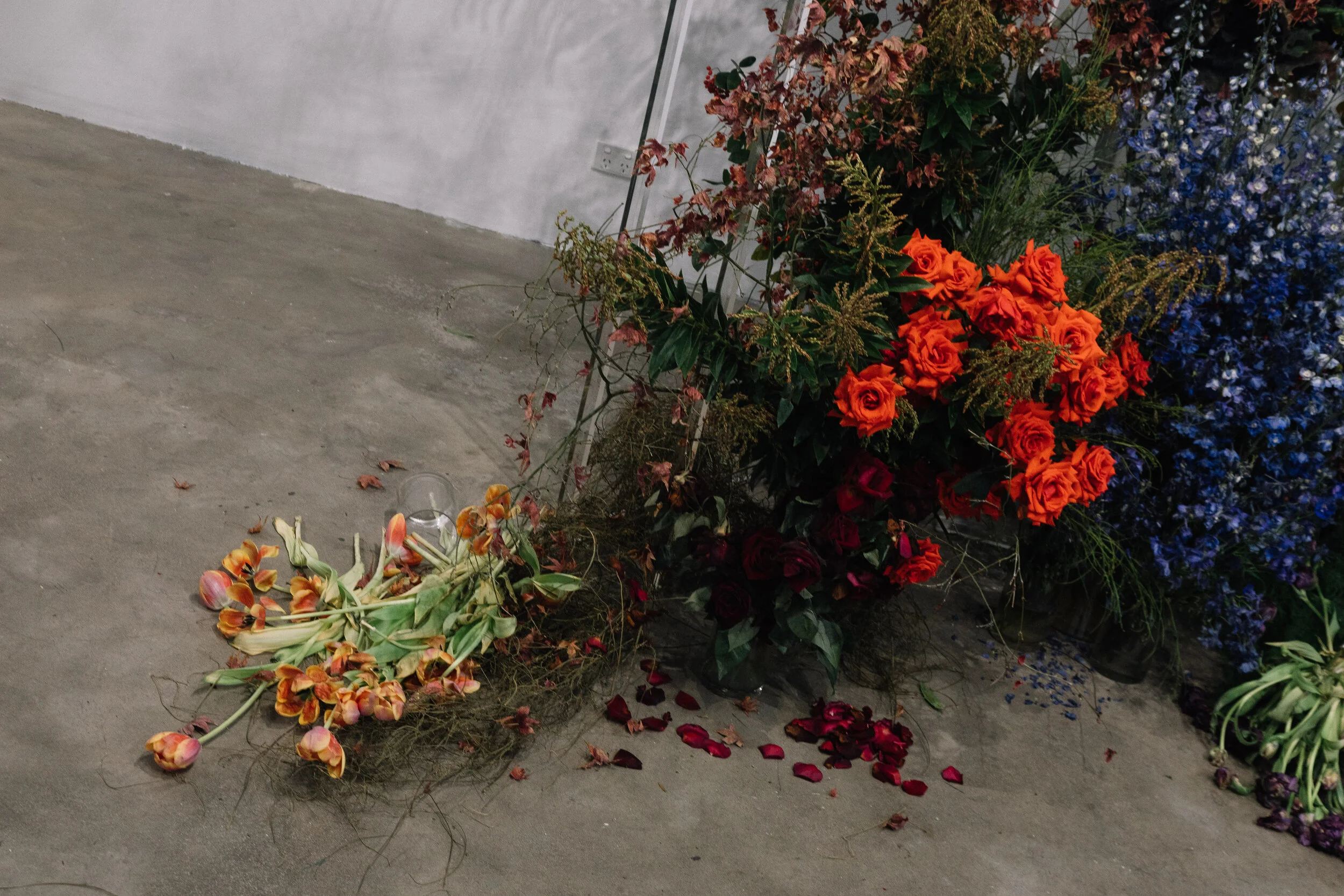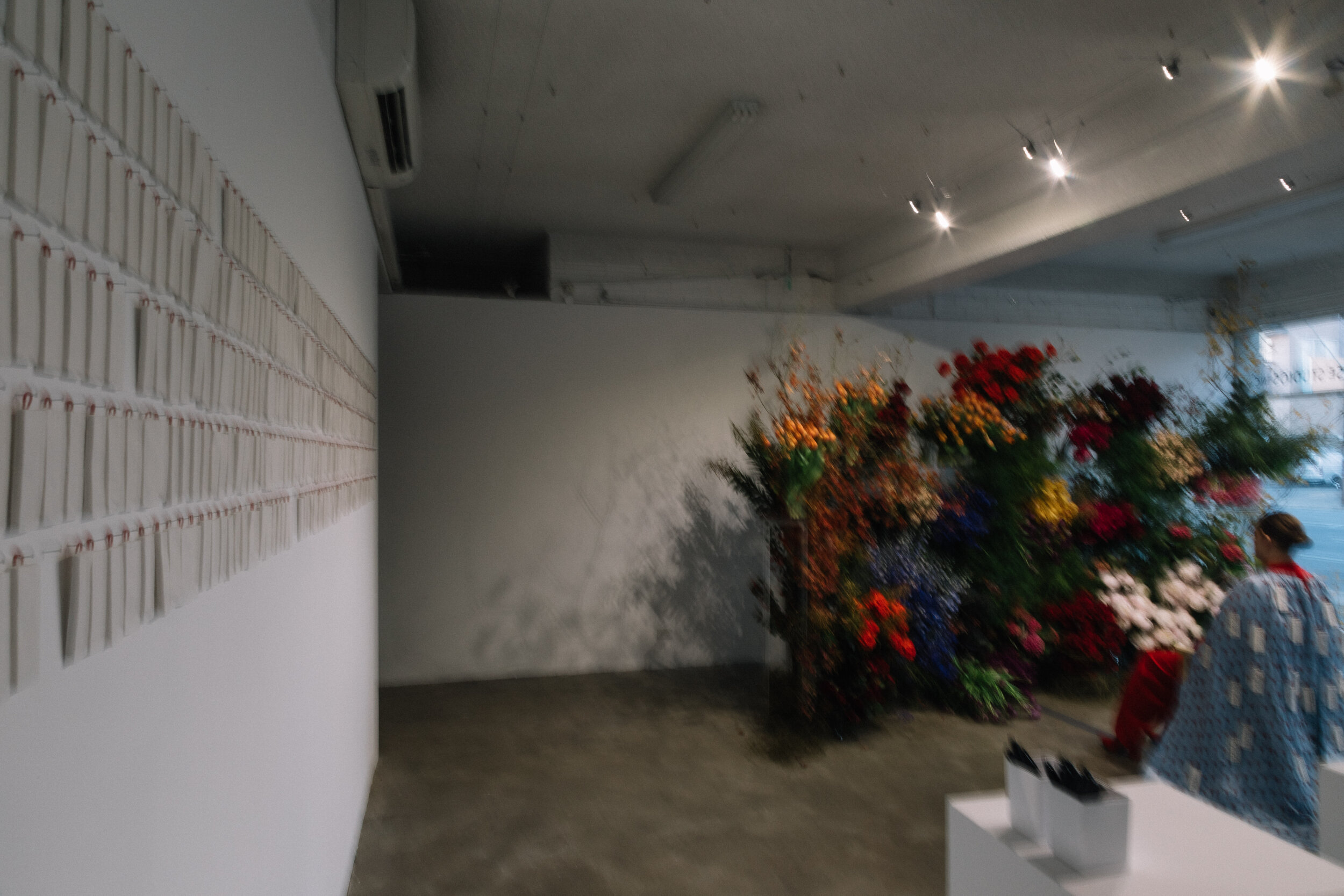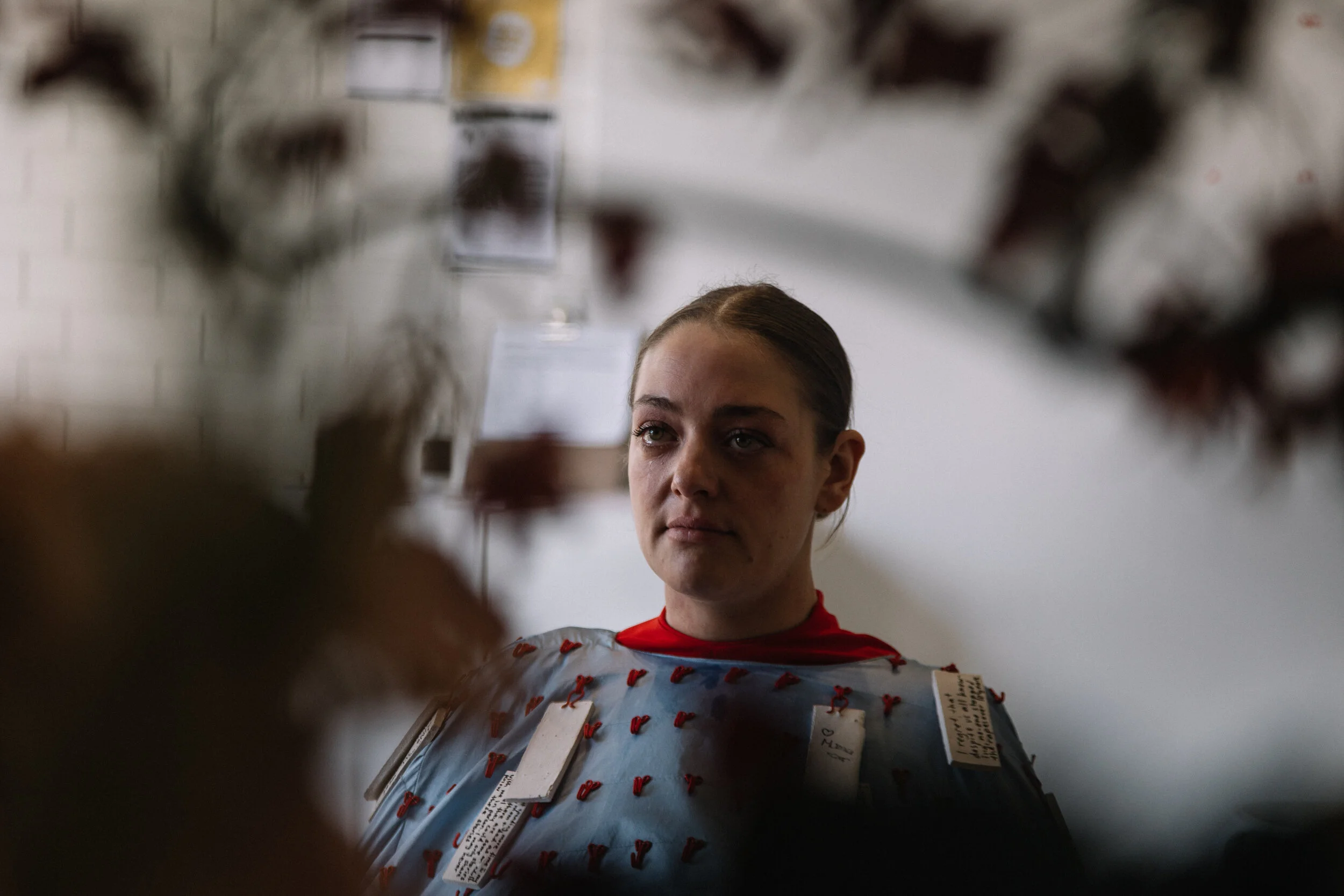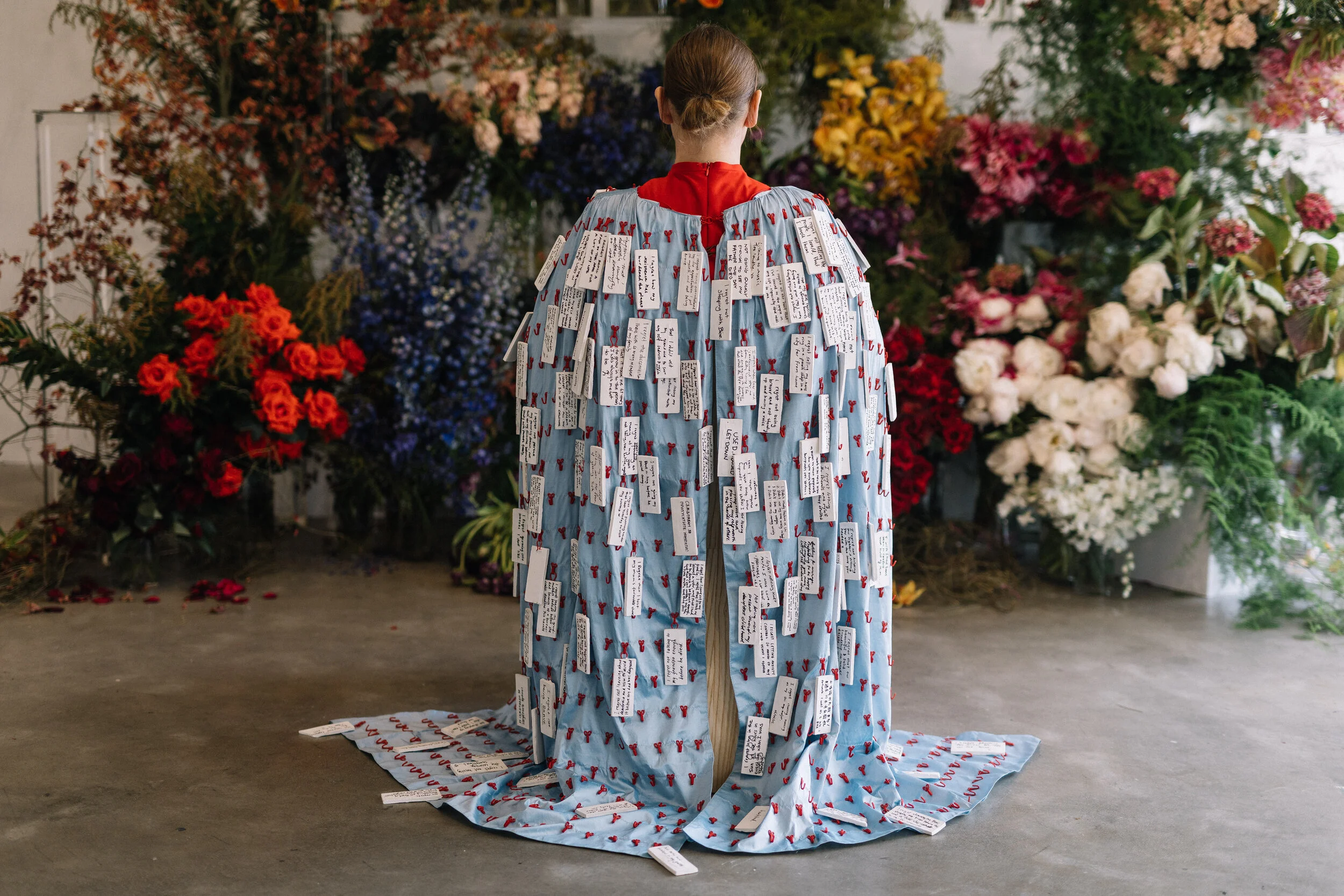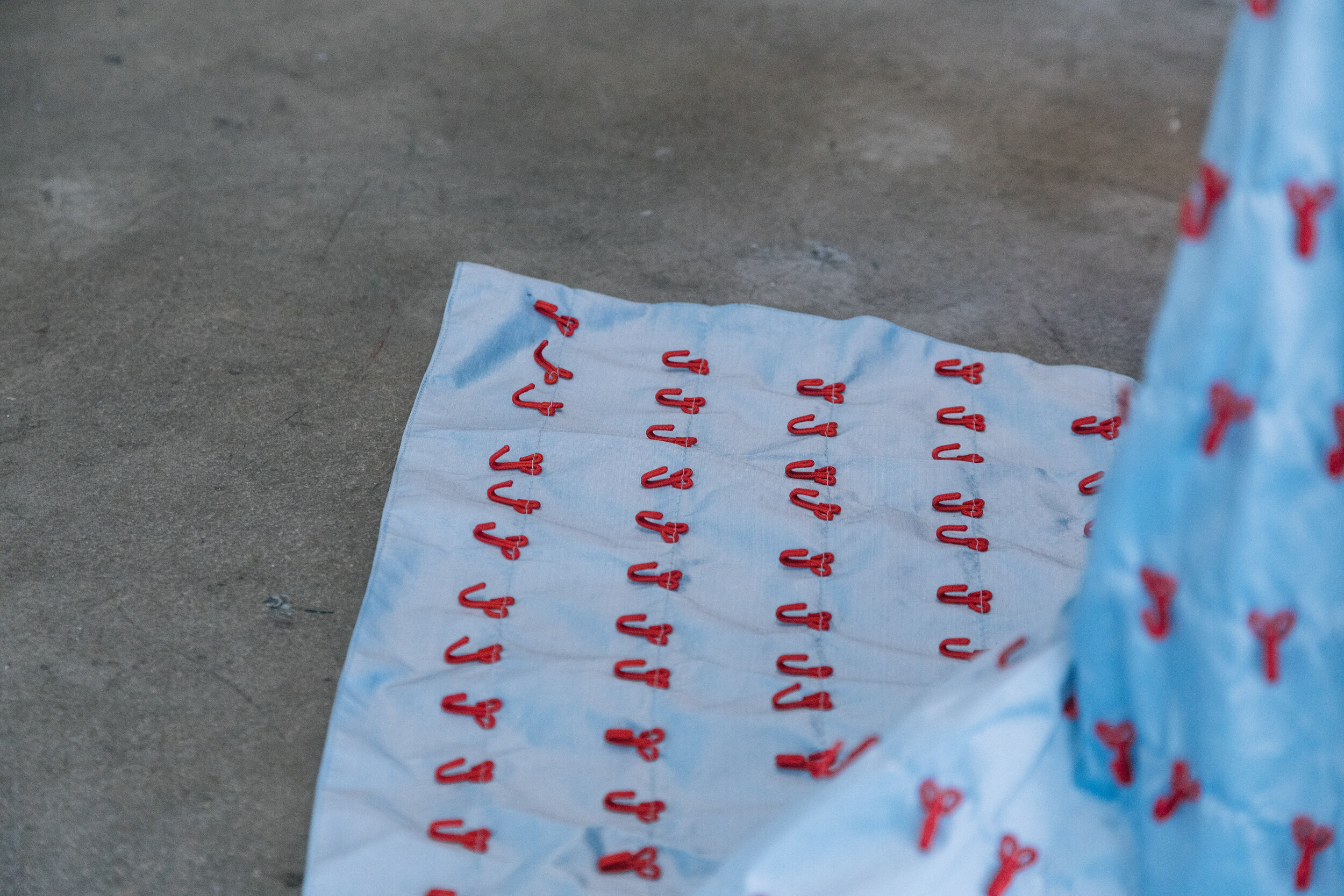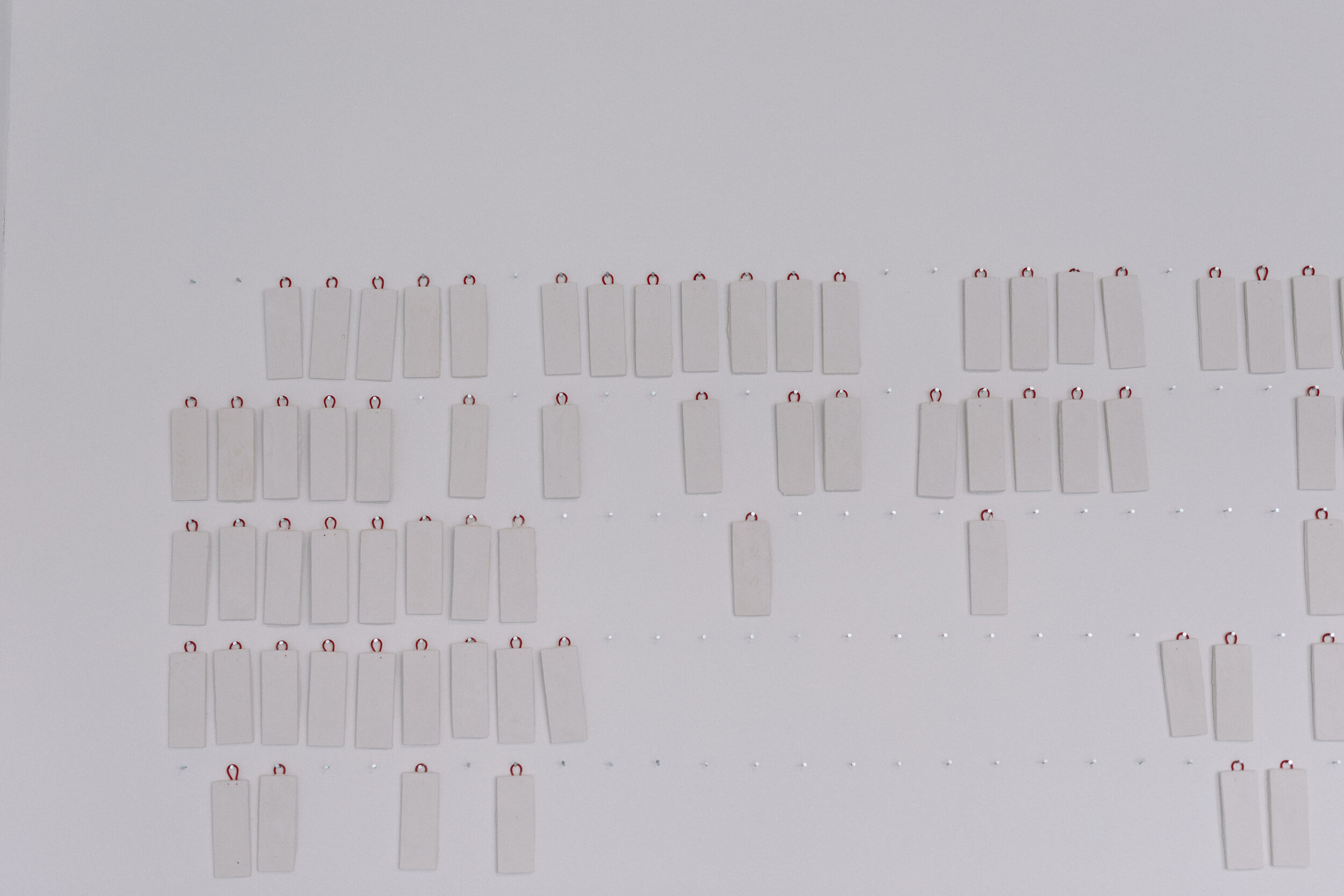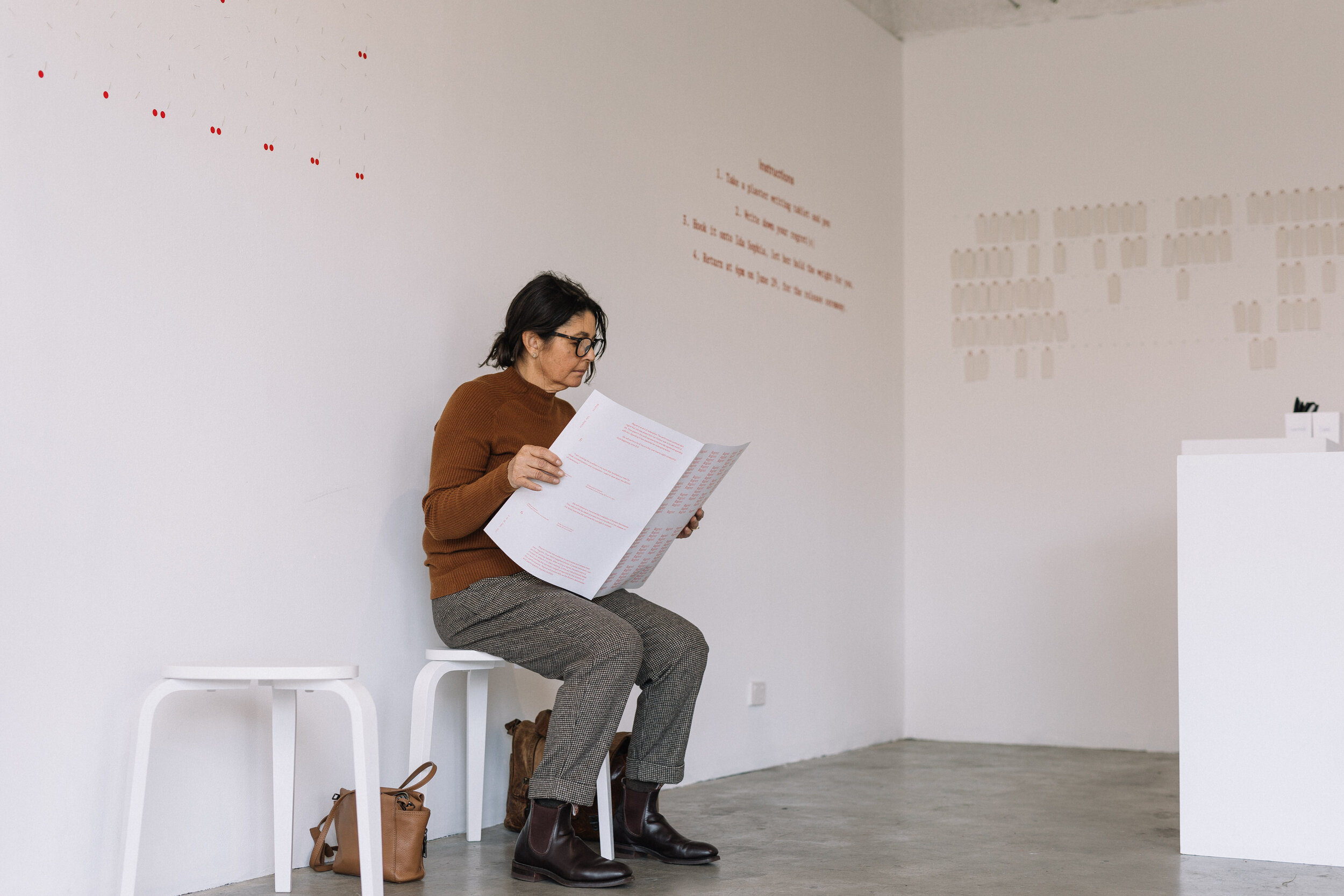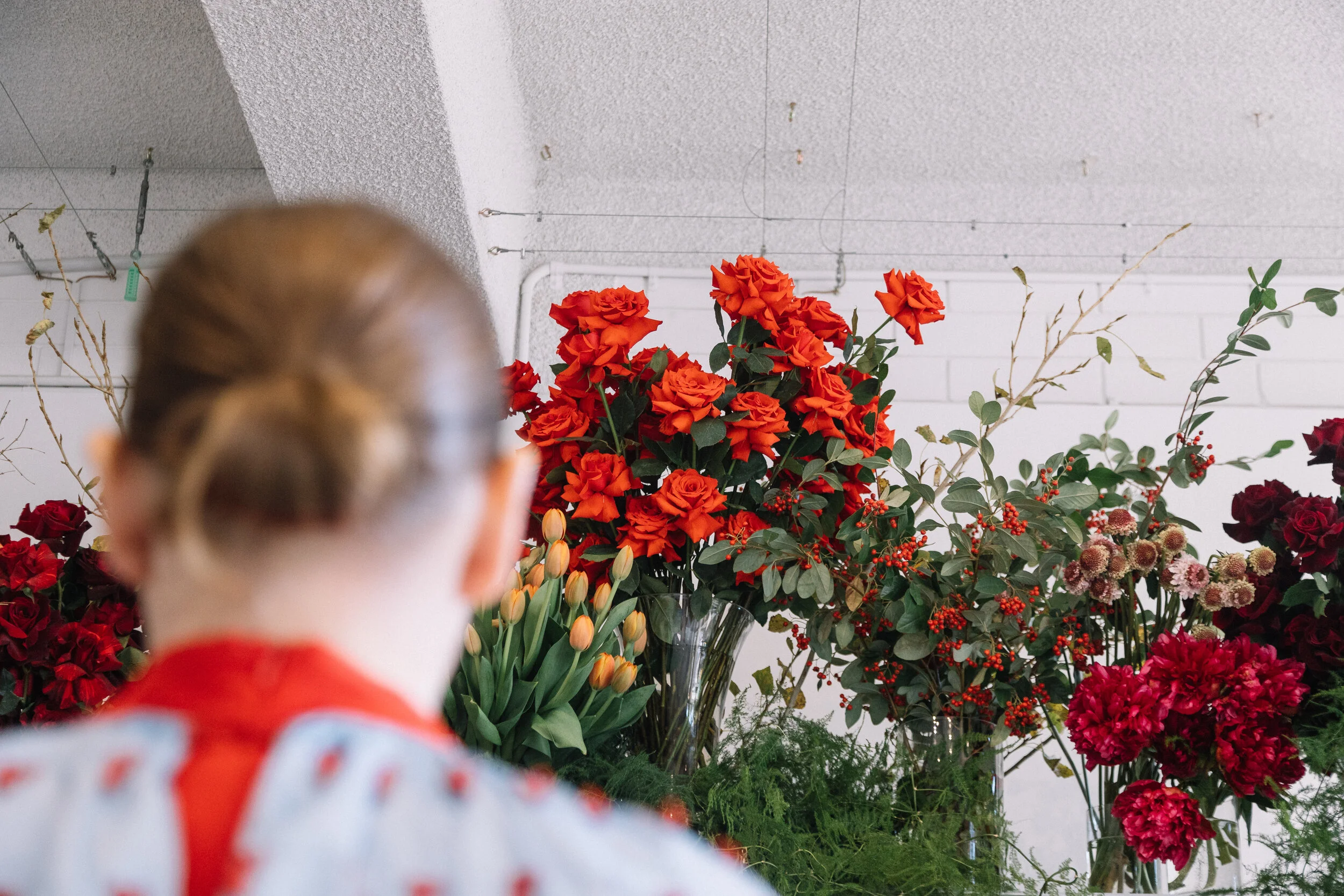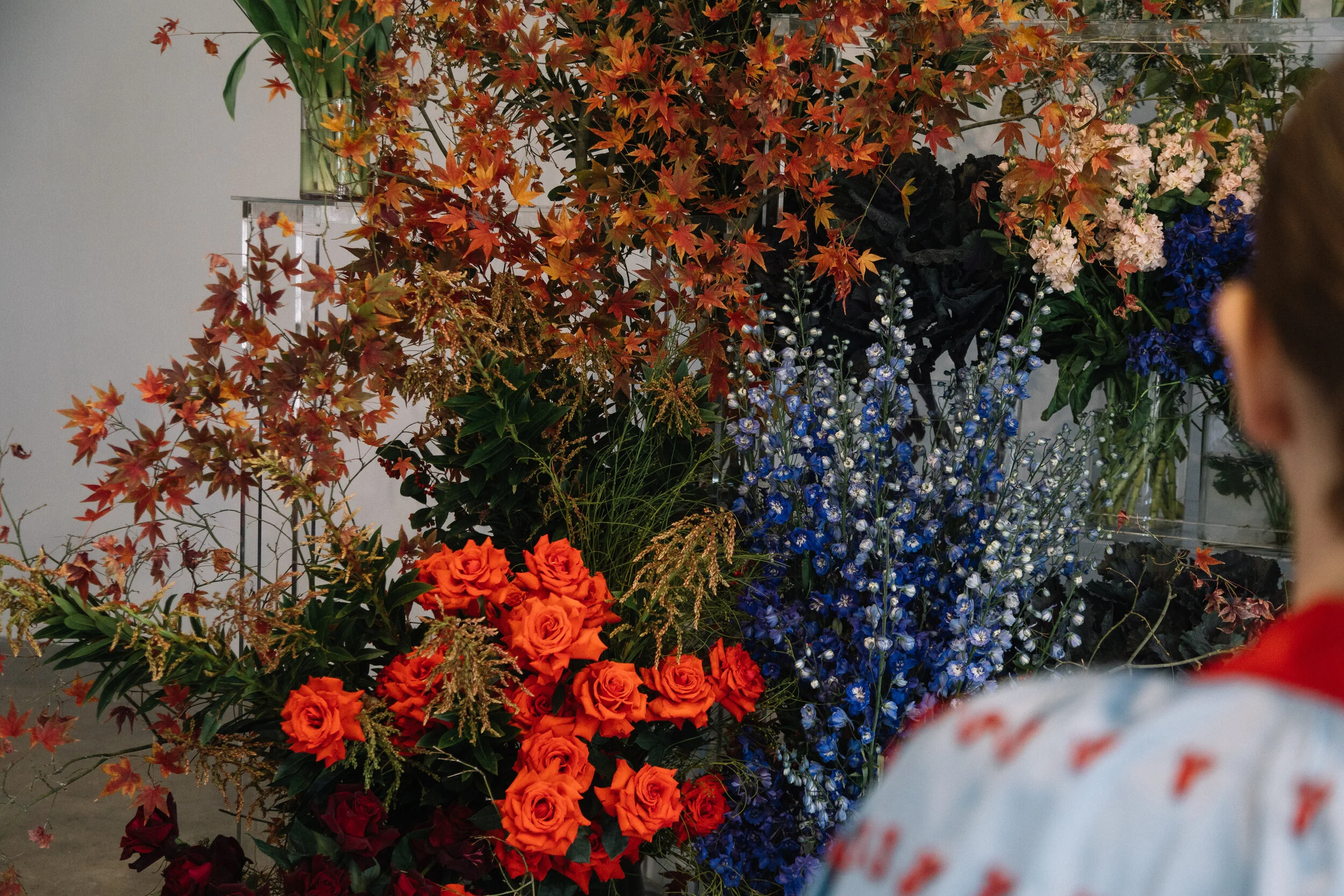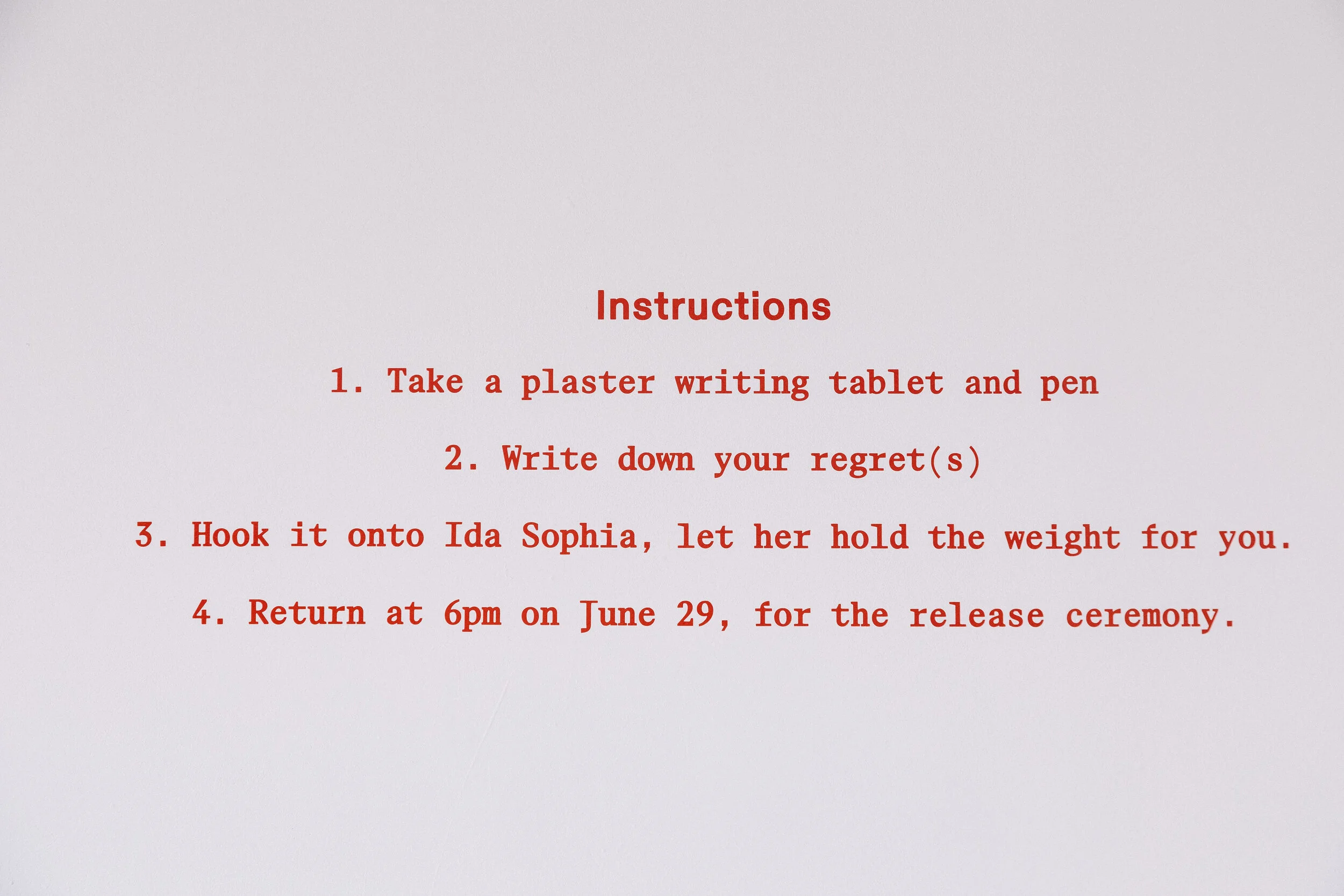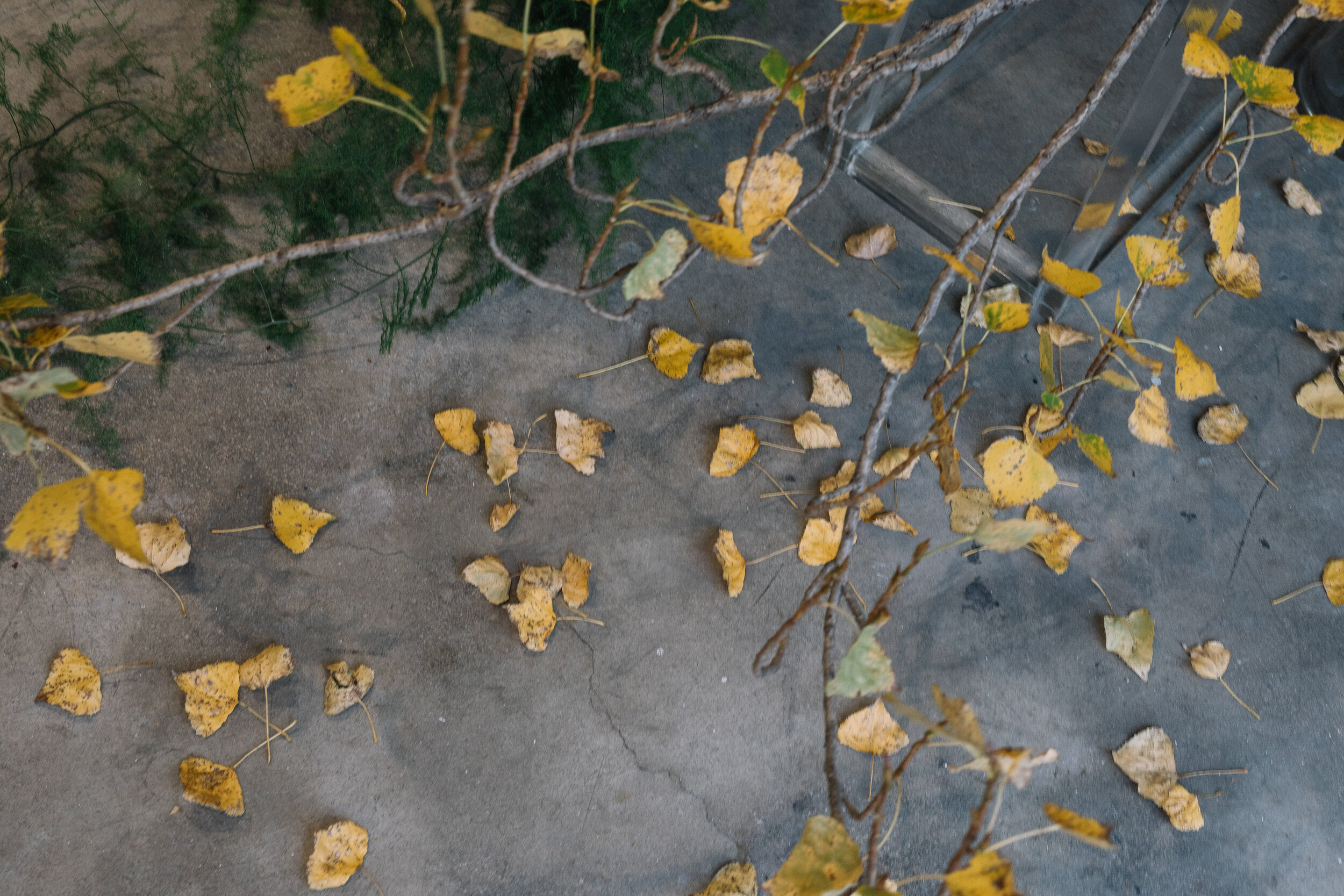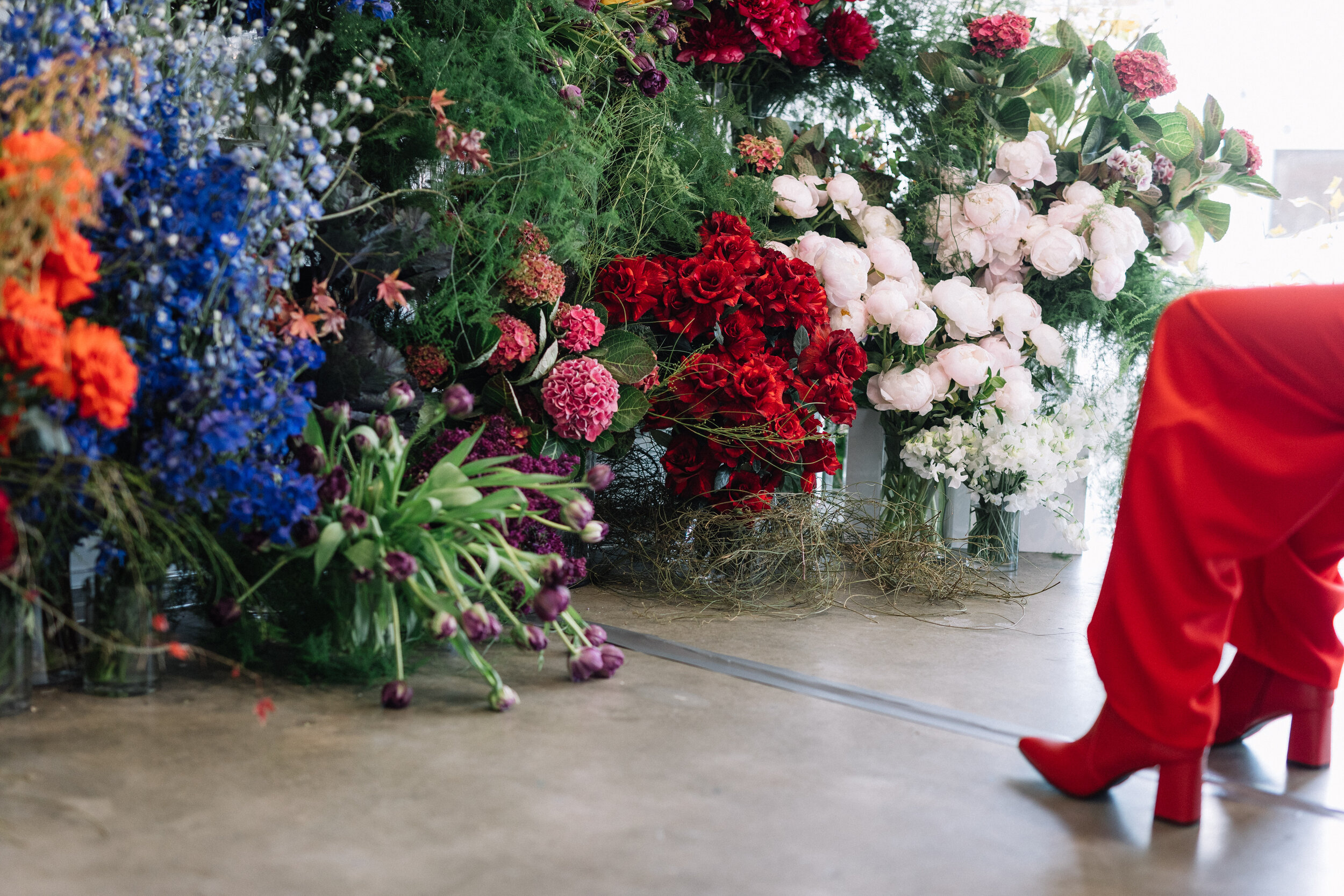
Regret, 2021
Regret was an act of redemption. The performance confronted Ida’s regret that she was absent from her Fathers’ side in his last month of life. Time spent in the work represents the time Ida regretted not spending with him. Spending it here became her redemptive action.
Over the month of June 2021, Ida observed a monumental installation of flowers decompose. This natural life-to-death process mirrored the effect of the disease on his body that she did not have the courage to face.
Regret invited the audience to participate and release their own regrets. Over 1000 weighted pieces of plaster were cast as small writing tablets. After writing a regret, the participant attached it to Ida’s clothing. In this act, Ida physically took on and carried the symbolic weight of Regret(s) for the duration of the performance.
Over 500 regrets were contributed.
Photographs/Performance Evidence co-authored
by Ida Sophia (Artist) and Thomas McCammon (Photographer)
Regret was gratefully supported by Arts South Australia, The City of Adelaide and The Independent Arts Foundation.
Regret: Catalogue Essay
by Caitlin Eyre
Performance artist Ida Sophia confronts her innermost shadows and emerges victorious in Regret, the last of a series of eight ritual-based actions that she has undertaken in memory of her late father, Alister Armstrong (1954—2013). Aged in her early twenties at the time of his death, Ida was understandably unprepared for the loss of her father and found herself unable to be at his bedside in the last month of his life. In Regret, her first solo exhibition in Australia and the most ambitious of her performance works to date, Ida exorcises the guilt and regret she has harboured over the past eight years by forcing herself to witness the slow process of death and decay in excruciating detail. Performed as a durational live artwork over 28 consecutive days, for six hours each day, Regret is a deeply personal, highly symbolic and ultimately empowering work that explores the transformational power that redemptive ritual actions can have in releasing us from the mistakes and disappointments of the past.
The initial catalyst for Regret is rooted in the series of diary entries that Ida wrote during a workshop at the Marina Abramović Institute in Evia, Greece in 2018. Written during a period of fasting and silence that resulted in heightened emotional clarity, Ida’s entries reflected on the last month of her father’s life and featured a starkly honest and abject list of all the excuses she had used to justify being absent from his side during this painful time. “What it illustrated for me were the roots of my guilt and the extent of my excuses for not being there as he slipped from life,” Ida says. “How I couldn’t bring myself to watch his decay. How I must do it now… Watch every slow, excruciating moment of it.” In order to atone for her absence for the final month of her father’s life, Ida has chosen to undertake an act of public penance that places her life almost entirely on hold for 28 days. Hour by hour, day by day, for one month, Ida sits amidst a monumental display of flowers and holds herself captive to the slow demise and eventual death of their beauty in all its terrible sensory physicality. At this deathbed vigil of thousands of little deaths, Ida intentionally invokes the visceral experience of decay by introducing heavy visual imagery and pungent odours, namely the presence of wilting blooms, fading colours, mould and sickly sweet rot. By immersing herself in this uncomfortable sensory experience, Ida attempts to fully realise and witness the death and decay that she so purposefully avoided eight years ago.
Along with the more overt visual and sensory elements of her performance, Ida also utilises the cleansing power of restriction and denial to demonstrate her commitment to being fully present in her deathbed vigil. To assist in maintaining the contemplative and engulfing mindset needed for the daily ritual, Ida has committed to upholding a demeanour of quiet contemplation, simplicity and restriction throughout both her public performance and her private life. Employing the act of fasting as both a signifier of penance and a tool to focus her mind, Ida undertakes a regime of daily food and water fasting until 6pm on each day of the performance, sustaining herself on simple meals, drinking only water and enforcing quiet reflective activities during her moments of rest in the evenings. Restraint from seeking comfort and distraction in the form of friends, family and social engagements is another element of this penance that Ida has put upon herself to ensure that she remains receptive and reflective throughout. “All the pleasures of life are paired back,” Ida says. “As much as I can, I want to step back from everything so that I don’t break the charismatic space.” While Ida previously used the elements of her busy life as excuses as to why she could not visit her father, Regret sees Ida putting everything in her life on hold to be solely and authentically present in this experience. She will be a constant witness to decay and death, without distraction, excuse or reprieve.
The intimate and reverent space that Ida has constructed for Regret is laden with a deeply symbolic visual language that supports the intention of her work and creates a charismatic space within which she can commit herself fully to the emotional and physical labour required. The resounding silence of the space is broken only by the projected rhythmic sound of Ida’s own heartbeat — a poignant reminder that the space we inhabit is simultaneously living and dying, and that as mortals we are granted only a certain number of heartbeats in our lifetime. The flowers are helped to their deaths through the provision of salted water (rather than fresh) to suggest both the tears of grief and the cleansing, cathartic power of release that crying offers in times of turmoil. Sitting in solitude gazing at the deteriorating flowers, Ida is attired in a blue silk cape and red long-sleeved undergarments that loosely reference depictions of the Virgin Mary in Christian iconography, though the artist has subverted this symbolism for her own means. This visual reference pays tribute to her father’s intense religious beliefs and the profoundly beautiful moments of spiritual ecstasy and emotion that he experienced through his Christian faith. Undertaking rituals and invoking iconography associated with Christian spiritual beliefs and practices are moments where Ida feels her father’s presence most, meeting him in the acts and spaces where he felt his own spirituality most intensely. The blood red colour of the undergarments is central to Ida’s practice and has been used across a number of previous performances to represent life through connotations to blood flow. In Regret, the red undergarments symbolise the way in which grief and regret put our lives on hold as we suffer, stagnate and are overwhelmed by the negative forces of these feelings. “Red is a reminder to the living that we are living…A reminder that your heart is pumping,” Ida explains. “I’m doing this work to process the grief so that I can live my life in the most incredible ways — how my father always intended me to live.” The wearing of red to symbolise a vivacity and zeal for life in such a performance underscores the empowering, redemptive and transformational ritual that Ida is undertaking in order to free herself from regret and to live life more fully.
Participatory practice is a central focus of Ida’s practice as she believes that it allows the artist to create opportunities for deep and meaningful encounters through art and with each other. To facilitate broader engagement with the universal themes of regret, disappointment and the wish for atonement in her work, participants are invited to write their own regrets onto one of 1,000 white plaster writing tablets and attach them to the corresponding 1,000 red hooks that adorn Ida’s blue cape. The cape will grow heavier each day as regrets are declared and unburdened, the weight of these regrets literally given to the artist to bear as she performs her act of contrition. “We carry regret around for so long that it becomes a part of us — it’s so heavy,” Ida says. “We do not realise how its weight prevents us from living fully, we drag it around into everything we do, every interaction we have.” By inviting participants to add their regrets, it is Ida’s intention that Regret will be a vessel that allows people to be gently nudged to reflect on the weight of regret in their own lives and to decide if they would like to undertake work to release themselves from these feelings.
While regret is a titular theme of this performance, redemption through sincere and authentic action is equally essential in understanding both the motivation and intention of Ida’s emotionally laborious ritual. On the last day of her self-imposed captivity, Ida will rise from her chair and cast off the plaster-laden cloak that has steadily engulfed and weighed her down over the past month. In casting off both her personal regrets and the collective regrets of all those who have unburdened themselves, Ida liberates herself from the guilt and shame of the past to walk unencumbered into the future. This final ritualised act on the path to self-realised redemption underscores the transformative power of the performance by offering an empowering resolution to both the narrative of grief that has been central to Ida’s practice and to the regret that has tinged the memories of her father. “Yes, the purpose of this performance is to mourn, but it is really to understand, to confront, to make friends with regret and free ourselves from it’s clutches,” Ida says. “A redemptive act can be as small as saying sorry to that one person or as much as needing to be with it for 28 days… I could take another lifetime of days to do this work, to spend time with him. But this is what I am allowed.”
Caitlin Eyre (b.1989) is an Adelaide-based freelance arts writer and Assistant Curator at JamFactory Contemporary Craft and Design.
-

ABC Artworks
Watch Ida Sophia speak about Regret on ABC Artworks, Episode 18.
-
Regret Reflection: MindShare SA
Read a reflection on the performance by Alicia Sullivan For MindshareSA
Listen: Ida Sophia on ABC Radio.
Interview on Regret with Troy Sincock for ABC Radio 891, June 2021
Regret
28 day Timelapse
Taken at 5 minute intervals over 28 consecutive days and nights at Floating Goose Studios, Adelaide Australia 2021.

